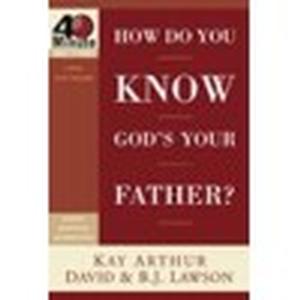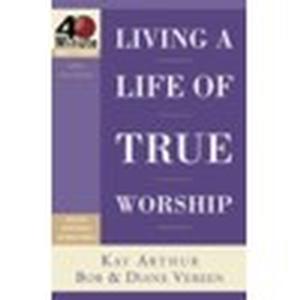
Weekly Bulletins

Sunday November 17, 2024
Believers are called to readiness, repentance, and hope in God's promise of restoration, standing in awe of His power, relying on Christ as our mediator, and living in worshipful anticipation of the day of the Lord.

-
Sunday November 17, 2024 Download
Believers are called to readiness, repentance, and hope in God's promise of restoration, standing in awe of His power, relying on Christ as our mediator, and living in worshipful anticipation of the day of the Lord.
-
Sunday November 10, 2024 Download
The main idea of Joel 1 is that God, in His sovereign rule over creation, uses even natural disasters to confront His people with the depth of their sin and the resulting barren spiritual condition it leaves. He calls them to genuine repentance and offers a merciful opportunity for restoration in relationship with Him before greater judgment arrives.
-
Sunday November 3, 2024 Download
God puts a lot of emphasis on how we use our money and possessions for this is a very practical way for us to examine our hearts towards our Lord.
-
Sunday October 27, 2024 Download
This week we look at the last chapter of Habakkuk and consider the prophet’s vision of the Lord who comes in glory and wrath.
-
Sunday October 20, 2024 Download
The Book of Habakkuk calls God’s people to live by faith, trusting that God is actively working to fulfill his righteous plan. This week's passage shows us that God does this through judgment.
-
Sunday October 13, 2024 Download
Even when the world seems to be crumbling around us, God’s people live by faith in Him, trusting that He is at work to bring about His righteous purpose and plan.
-
Sunday October 6, 2024 Download
Psalm 106 urges us to reflect on our own sin in light of Israel’s history of rebellion against God and to praise Him for His unending mercy and forgiveness, which restores us to a right relationship with Him.
-
Sunday September 29, 2024 Download
This psalm again calls God's people to praise the Lord. The focus is on God's faithfulness to the covenant he made with Abraham, and through Abraham, all of God's people.
-
Sunday September 22, 2024 Download
Last week the psalm encouraged us to exhort ourselves to "Bless the Lord" because of his steadfast love. This week's psalm encourages us to do the same because of God's greatness in creating and sustaining the universe.
-
Sunday September 15, 2024 Download
This week we consider a psalm in which the psalmist exhorts himself to "bless the Lord" in response to who God is and what God has done.
-
Sunday September 8, 2024 Download
Psalm 102 is the prayer of a deeply afflicted man who turns to God alone for help and hope. This psalm teaches God’s people, especially in desperate circumstances, to pray with a Christ-centered confidence.
-
Sunday September 1, 2024 Download
This week we look at a psalm of David in which he expresses his desires to imitate God's righteous reign.
-
Sunday August 25, 2024 Download
Psalm 100 is a culminating psalm following the enthronement psalms we have looked at this summer. It calls God's people to praise because he is God and because he is good.
-
Sunday August 18, 2024 Download
This week we consider another enthronement psalm and the mantra "The Lord Reigns!" Psalm 99 is distinctive in how it addresses the holiness of God's reign.
-
Sunday August 11, 2024 Download
Psalm 98 is a triumphant song of praise that calls God's people to celebrate His mighty acts of salvation, recognize His sovereign reign as King, and anticipate His just and righteous judgment.
-
Sunday August 4, 2024 Download
Psalm 97 is a song of praise that declares God’s powerful reign as revealed through His law, His incomparable nature, and His people.
-
Sunday July 28, 2024 Download
This week's psalm encourages us to praise the Lord, proclaim the Lord, and prepare for the return of the Lord because he reigns as Creator, King, and Judge.
-
Sunday July 21, 2024 Download
In this week's psalm the psalmist admonishes us to joyfully worship God and to not harden our hearts.
-
Sunday July 14, 2024 Download
When God's people face evil and injustice in the world, Psalm 94 instructs us to cry out to God for justice, warn others of God’s judgment, rest in God's discipline, and trust in God’s help.
-
Sunday July 7, 2024 Download
This psalm considers the majestic, mighty, and relational reign of the Lord.
-
Sunday June 30, 2024 Download
Psalm 92 teaches us that God’s glorious work of destroying the wicked and prospering the righteous should elicit our praise.
-
Sunday June 23, 2024 Download
Psalm 91 is a psalm that considers what it means for God to be our refuge.
-
Sunday June 16, 2024 Download
Psalm 90 teaches us to live our finite lives in the awareness of God's eternal glory, to acknowledge the seriousness of our sin, and to call on Him for mercy and wisdom in all our endeavors.
-
Sunday June 9, 2024 Download
Psalm 89 provides a powerful example of how to sustain our faith when God’s promises feel distant, grounded in four great assurances of God's faithfulness.
-
Sunday May 26, 2024 Download
This week we will be having two sermons. Nathan Dunmore will be preaching from Colossians 3:12-17. Dave DeSmit will be preaching from John 2:13-22.
-
Sunday May 19, 2026 Download
This week we complete our sermon series considering the death of Saul and how that emphasizes the sovereignty of God.
-
Sunday May 12, 2024 Download
This week's chapter presents God as the One who preserves and protects and prospers his faithful ones. Further, this chapter portrays David as a faithful man; a man after God's own heart.
-
Sunday May 5, 2024 Download
In 1 Samuel 29, the accounts of David and Achish offer valuable insights into gaining wisdom through reflection on the believer's calling in Christ, the function of conscience, and God's gracious providence.
-
Sunday April 28, 2024 Download
King Saul continues his decline as he visits a medium. His decline, and the reason he visits the medium, is seen in God's silence in the face of his troubles.
-
Sunday April 21. 2024 Download
1 Samuel 27 reminds believers that, in our moments of despair, we need to anchor our trust in God's unchanging attributes, continue to mortify our sin in the power of the Holy Spirit, and persevere in our faith by clinging to Jesus.
-
Sunday April 14, 2024 Download
This week we continue to see that God prepares, preserves, and provides Israel's king
-
Sunday April 7, 2024 Download
This chapter focuses on God's providential preparation of David to be the covenant king of Israel. God works through a wise, godly woman.
-
Sunday March 31, 2024 Download
This Easter Sunday we consider the Spirit's role in the death and resurrection of Jesus.
-
Sunday March 24, 2024 Download
What was God the Father's role that first Easter? God the Father was at work fulfilling His promise to redeem His people from sin, bringing to fruition the events foretold by His prophets, revealing His love for us at the cross, and preparing His people for the day when we will be reunited with Him.
-
Sunday March 17, 2024 Download
We will explore from Genesis 3 how God cares for His people in the midst of their sin and suffering, and why counselling is integral to life in God's church.
-
Sunday March 3, 2024 Download
This chapter is another opportunity for the author of 1 Samuel to contrast David and Saul. One stark difference between the two is that the Lord helps David.
-
Sunday February 25, 2024 Download
This week's passage emphasizes the continuing degradation of King Saul and the godly, king-like virtue of David.
-
Sunday February 18, 2024 Download
This week we see how the Lord sovereignly preserves David as he becomes a permanent fugitive from Saul.
-
Sunday February 11, 2024 Download
This week we consider how God sovereignly reigns over the events of David's departure from Saul's court.
-
Sunday February 4, 2024 Download
David escapes death four times and the author of 1 Samuel makes it clear that it is God who delivers him.
-
Sunday January 28, 2024 Download
Today we will be looking at a moment in the life of Moses as God asks him to go back to Egypt.
-
Sunday January 21, 2024 Download
God continues to prosper David which results in both good and bad times for David.
-
Sunday January 14, 2024 Download
The beloved story of David and Goliath demonstrates the unrivaled supremacy of God and how he uses weakness to accomplish his purposes.
-
Sunday January 7, 2024 Download
This week's passage marks the beginning of the rise of David as God's appointed king.
-
Sunday December 31, 2023 Download
The difficulties encountered in this passage point us to the truth that God is to be obeyed and when we fall short of obedience, we should whole-heartedly repent.
-
Sunday December 24, 2023 Download
This Christmas Eve, as we gather for our Lord's Day gathering, we consider how Jesus' birth was the true light coming into the world.
-
Sunday December 17, 2023 Download
This passage teaches us about making decisions by faith or other motivations through two leaders and their actions.
-
Sunday December 10, 2023 Download
This week's sermon considers the inadequacy and incapability of humanity.
-
Sunday December 3, 2023 Download
This week we consider Samuel's words and actions which propose a graceful God and the expected response of God's people to his grace.
-
Sunday November 26, 2023 Download
First Samuel 11 recounts God's salvation of His people. Just as God empowered Saul to achieve victory for the Israelites, He has provided Jesus as the ultimate means of our salvation.
-
Sunday November 19, 2023 Download
This week we consider the ascension of Israel's first king. The passage indicates that God delivers and establishes his people.
-
Sunday November 12, 2023 Download
This week we look at a passage that the author of 1 Samuel uses to compare and contrast Israel's soon-to-be-king and the Lord, their covenant king.
-
Sunday November 5, 2023 Download
This week we return to our sermon series through 1 Samuel. Today's passage covers Israel's request for a king and the responses of Samuel and God.
-
Sunday October 29, 2023 Download
In this final sermon of our five-part series on Mission, we’ll explore our mission regarding the topic of mercy.
-
Sunday October 22, 2023 Download
Today's message builds on the previous three messages about God's mission in the world, and our part in it. Today we will "zoom in" to consider one we might share in the Lord's work: Short-Term Missions.
-
Sunday October 15, 2023 Download
This week we consider a biblical, practical application of the mission of the church which has as its foundation the mission of God. Church planting is clearly a means, according to the Bible, of accomplishing the mission.
-
Sunday October 8, 2023 Download
Building on the Mission of God from last week, this Sunday we consider the mission of the church
-
Sunday October 1, 2023 Download
This first sermon in our MISSION sermon series looks at the mission of God and how God's nature, God's purpose, and God's works inform his mission and ours.
-
Sunday September 24, 2023 Download
Psalm 87 is a psalm extolling the excellencies of Zion, the city of God. Zion’s glory is that God is with his people.
-
Sunday September 17, 2023 Download
The psalmist in Psalm 86 praises God as the incomparable God over all other gods and laments the affliction he faces from enemies.
-
Sunday September 10, 2023 Download
This week's psalm is another psalm of lament that looks to God to restore and revive his people.
-
Sunday August 27. 2023 Download
This week's psalm is both a psalm of lament and a psalm of imprecation. We consider the psalm, consider how it directs our gaze to Christ, and how we might apply it.
-
Sunday, August 20, 2023 Download
We continue in our series in Psalms looking at a call for judgement.
-
Sunday August 13, 2023 Download
Psalm 81 is a powerful call to listen and live for our great God, as we explore the impact of embracing God's formative work in our lives.
-
Sunday August 6, 2023 Download
This week we consider another lament as well as looking at what it means for God to let his face shine on us.
-
Sunday, July 30, 2023 Download
This week we consider a lament by Asaph that ultimately pertains to the glory of God.
-
Sunday July 23, 2023 Download
This week we learn from Psalm 78 the importance of recalling and teaching the will and works of God to future generations.
-
Sunday July 16, 2023 Download
This week we see how godly lament help us navigate times of chaos and crisis.
-
Sunday, July 9, 2023 Download
Psalm 76 is a song of victory calling all people to fear our glorious and majestic God, whose power is unmatched and unparalleled.
-
Sunday July 2, 2023 Download
This week's psalm considers God as judge and God's judgment. In light of those things, it calls us to thanksgiving and praise.
-
Sunday June 25, 2023 Download
This week we see the Lord helping Israel after Israel repents and returns to him. The help of the Lord encourages us to repent, to pray, and to commemorate his goodness.
-
Sunday, June 18, 2023 Download
This week we endeavor to understand the heart of the Father through the heart of a father.
-
Sunday June 11, 2023 Download
This week's focus is on the return of the Ark of the Covenant to Israel and what the events teach us about God.
-
Sunday June 4, 2023 Download
This week we look at God's judgment against Israel as he uses the Philistines to defeat them in battle and take the ark.
-
Sunday May 28, 2023 Download
This week we consider the call of Samuel and how God established him as a prophet in Israel.
-
Sunday May 21, 2023 Download
Genesis 3 gives the account of how sin enters God’s good creation, and of how God plans to redeem it all from sin.
-
Sunday May 14, 2023 Download
This week's passage contrasts the faithfulness of the family of Elkanah with the unfaithfulness of the family of Eli.
-
Sunday May 7, 2023 Download
Our sermon series in the Book of 1 Samuel begins with the incredible story of the birth of Samuel.
-
Sunday April 30, 2023 Download
The culminating sermon of our Hebrews series is a prolonged consideration of Jesus in the Book of Hebrews with emphasis on his actions, his death, and his names.
-
Sunday April 23, 2023 Download
In this second-to-last sermon in our Hebrews sermon series we consider the final request, final prayer, final exhortation, and final words of the author.
-
Sunday April 16, 2023 Download
This week we consider several admonitions from the author of Hebrews in regard to persevering; these are practices that help us to remain faithful.
-
Sunday April 9, 2023 Download
This week we consider the Easter story in a single verse from the Book of Hebrews.
-
Sunday April 2, 2023 Download
This week we consider practical exhortations of what it means to offer God acceptable worship.
-
Sunday March 26, 2023 Download
This week we look at how the author of Hebrews delivers the final warning to his readers and the response that is anticipated.
-
Sunday March 19, 2023 Download
The author of Hebrews has been encouraging believers to endure by faith. Today's passage contrasts what they do not endure for with what they do endure for.
-
Sunday March 12, 2023 Download
In this passage, believers are warned not to allow worldly priorities to distract them from their commitment to Christ, so that they may ultimately see God and rejoice in His presence for eternity.
-
Sunday March 5, 2023 Download
This week we consider the perspective of suffering as God's discipline put forth in the 12th chapter of Hebrews.
-
Sunday February 26, 2023 Download
Corporis speaker and Westminster Seminary professor A. Craig Troxel will be preaching on the heart and condemnation.
-
Sunday February 19, 2023 Download
This week we consider Jesus as the example of enduring by faith and learn how he encourages and enables our endurance.
-
Sunday February 12, 2023 Download
This week we consider the faith of the Judges, Kings and Prophets as well as faith in exploits and faith in hardships.
-
Sunday February 5, 2023 Download
This week we consider the faith of Moses' parents, Moses himself, the Israelites, and Rahab.
-
Sunday January 29, 2023 Download
This week we consider the faith of the Patriarchs--Abraham, Isaac, Jacob, and Joseph--and expand our understanding of godly faith.
-
Sunday January 22, 2023 Download
The author of Hebrews continues to discuss faith and give examples of faith that resulted in the commendation of God to Old Testament saints.
-
Sunday January 15, 2023 Download
We begin our consideration of the eleventh chapter of Hebrews considering faith as we prepare for a chapter on the topic.
-
Sunday January 8, 2023 Download
This week's sermon focuses on the practical admonition that is made coming out of the very serious warning that precedes it. The author of Hebrews informs the readers how they should heed his warning.
-
Sunday January 1, 2023 Download
Today we will look at the four key truths that God had for Joshua that we can apply to our lives today.
-
Sunday December 18, 2022 Download
This week’s Christmas sermon considers how the coming of Jesus defeats despair, disrupts silence, and dispels darkness.
-
Sunday December 11, 2022 Download
This week we are warned by the author of Hebrews that the rejection of God’s Son and his sacrifice through deliberate, persistent sin, will result in judgement.
-
Sunday December 4, 2022 Download
Because of Christ’s high priestly work, we are able to persevere in faith by drawing near to God, holding onto the confession of hope we possess, and live as those characterized by love for one another.
-
Sunday November 27, 2022 Download
This week we conclude a major section of Hebrews. The author culminates his argument of the superiority of Jesus by presenting the testimony of the Holy Spirit in regards to Jesus and his sacrifice.
-
Sunday November 20, 2022 Download
This week we compare the priests who stand with the Priest who sat down at God's right hand and what that says about their sacrifices.
-
Sunday November 13, 2022 Download
This week we consider the obedience of Jesus in his self-sacrifice.
-
Sunday November 6, 2022 Download
We continue to consider the sacrifice of Christ and compare it to the Old Covenant sacrifices.
-
Sunday October 30, 2022 Download
This week we look at the sufficiency for salvation of the self-sacrifice of the Son of God.
-
Sunday October 23, 2022 Download
Returning to the Book of Hebrews, we consider more reasons from the author concerning the superiority of Jesus and the covenant he mediates.
-
Sunday October 16, 2022 Download
In our text this morning we see an example of the importance of church membership.
-
Sunday October 2, 2022 Download
This week we consider what the New Testament teaches about membership through its patterns, practices, and imperatives.
-
Sunday September 25, 2022 Download
This first sermon in our series on church membership looks at the foundation for membership seen throughout Scripture.
-
Sunday September 18, 2022 Download
This week we look at a communal lament over the destruction of Jerusalem.
-
Sunday September 11, 2022 Download
This week we look at a psalmist’s crisis of faith and learn how that teaches us in our day.
-
Sunday September 4, 2022 Download
This week we look at a royal psalm initially about King Solomon but ultimately about King Jesus.
-
Sunday August 28, 2022 Download
This week's psalm examines the thoughts, words, and actions of an elderly follower of God.
-
Sunday August 14, 2022 Download
This week we consider an individual lament of the psalmist as he is being reproached by his opponents.
-
Sunday August 7, 2022 Download
This week’s psalm considers God’s work of conquest as he led Israel into the Promised Land and how this psalm is fulfilled in Jesus.
-
Sunday July 31, 2022 Download
This week’s psalm considers the blessing of God and how he uses it in our lives.
-
Sunday July 24, 2022 Download
This week we’ll see in Psalm 66 how God, in his sovereignty, delivers his people from the slavery of this world, resulting in their praise.
-
Sunday July 17, 2022 Download
In Psalm 65, David's song of praise provides encouragement for believers to offer praise to God as our Savior, our Sovereign Creator, and our All-Sufficient Provider.
-
Sunday July 10, 2022 Download
God uses suffering to give us opportunities that produce God glorifying benefits.
-
Sunday July 3, 2022 Download
Psalm 63 teaches that communion with God is what truly satisfies our souls.
-
Sunday June 26, 2022 Download
This week we see that Jesus's sacrifice is superior to those of the old covenant based on the sphere, the means, the outcome, and the effectiveness.
-
Sunday, June 19, 2022 Download
This passage illustrates God’s accessibility to us by recounting His design for the tabernacle.
-
Sunday, June 12 Download
This week we consider the deficiencies of the Old Covenant and what is better with the New Covenant.
-
Sunday June 5, 2022 Download
In this passage we see that Jesus' ministry eclipses all others because his divinely established throne, which is set in God's heavenly temple, is evidence of a better covenant.
-
Sunday May 29, 2022 Download
This week the author of Hebrews summarizes his portrayal of Jesus as the superior priest by pointing to his perfections.
-
Sunday May 22, 2022 Download
This week we consider the extent of the salvation that Christ has accomplished for his people.
-
Sunday May 15, 2022 Download
This week we continue to consider how Jesus is superior to the Levitical priests.
-
Sunday May 8, 2022 Download
This week we consider Jesus's superiority based on the better hope that is found in him.
-
Sunday April 24, 2022 Download
Our final sermon in our Easter series “From the Dead” looks at practical implications of the resurrection of Jesus.
-
Sunday April 17, 2022 Download
The resurrection of Jesus is a display of the power of God, a vindication of Jesus's saving work, and a guarantee of eternal life for God's people.
-
Sunday April 10, 2022 Download
This week our passage gives us 5 charges to encourage the Jacqueline Street Alliance Church team with as they begin Sunday morning services next Sunday.
-
Sunday April 3, 2022 Download
This week we begin our sermon series built on the one explicit mention of the resurrection in the Book of Hebrews. We will consider the title with which the author addresses God is his prayerful benediction: the God of peace.
-
Sunday March 27, 2022 Download
This week we consider a passage which exposes the insufficiency of both the Levitical priests and the Mosaic Law and directs our attention to the sufficiency of Christ.
-
Sunday March 20, 2022 Download
No matter what happens in our world, every Christian should live with certainty about their identity and their future. We should also be certain about the life we are called to live.
-
Sunday March 13, 2022 Download
Today we look at who Melchizedek was and why that encourages us to think about who Jesus is.
-
Sunday March 6, 2022 Download
This week’s passage focuses on the assurance and hope found in the Father’s word and in the Son’s work.
-
Sunday February 27, 2022 Download
This week we welcome Pastor Kevin Rutledge as he teaches from Exodus on the Jealousy of God.
-
Sunday February 20, 2022 Download
Our text this morning is the hopeful conclusion to a series of rebukes, corrections and warnings that came before. In these verses the author of Hebrews offers comfort and encouragement as he assures his audience of his confidence in their faith and his hope for their preservation.
-
Sunday, February 13, 2022 Download
We continue considering the warning passage that we have looked at for several weeks. This week we see that determined disregard for the Son and his salvation will result in judgment. We are admonished to not neglect so great a salvation.
-
Sunday February 6, 2022 Download
This week we consider again verses that call believers to leave immaturity and move on to maturity.
-
Sunday January 30, 2022 Download
In our passage today the author of Hebrews takes a break from reflecting on Christ’s high priestly office to rebuke his audience for their immaturity.
-
Sunday January 23, 2022 Download
By comparing and contrasting Jesus and the Levitical priests, the author of Hebrews demonstrates that Jesus is a better priest and serves in a better priesthood.
-
Sunday January 16, 2022 Download
We see in these verses the connection between Jesus as our high priest and our perseverance in the faith.
-
Sunday January 9, 2022 Download
In our message today, the author of Hebrews concludes his reflection on the rest of God, with a final encouragement to enter that rest, or face the consequences of disobedience.
-
Sunday January 2, 2022 Download
This week we return to our sermon series through Hebrews considering the rest of God and how believers enter into it.
-
Sunday December 26 Download
This week we see that along with being born to die and being born to destroy, Jesus was also born to deliver.
-
Sunday December 19, 2021 Download
This morning we will see that part of the reason that Jesus was born was to destroy the devil. At Christmas we celebrate the birth of our victorious king, the one who will destroy his enemy forever.
-
Sunday December 12, 2021 Download
The first sermon in our series on the incarnation considers that Jesus was born to die.
-
Sunday December 5, 2021 Download
Having discussed the nature of the warnings in Hebrews last week, we will consider the warning delivered in our passage and see how it can be applied in our day.
-
Sunday November 28, 2021 Download
This week we consider how warnings function in the Book of Hebrews. We will answer the questions, “Who are they directed at?” and “What are the consequences?”
-
Sunday November 21, 2021 Download
As we finish our series on the Church, we see that the hope of the church is found in the fact that God has promised to redeem his people and to dwell with them forever, and we hope and believe that he will.
-
Sunday November 14, 2021 Download
In our passage today we see Paul describing what the life of the church should look like as we seek to glorify God as his chosen people.
-
Sunday November 7, 2021 Download
As we spend the next 3 weeks considering the church, we begin this week looking at the very first church of the New Testament age, the church in Jerusalem. We consider how it was born, how it conducted itself, and how it expanded.
-
Sunday October 31, 2021 Download
This week’s passage has the author of Hebrews focusing on the faithfulness of Christ.
-
Sunday October 24, 2021 Download
In our text today we continue to see how Christ is superior to angels in every way. In this continued reflection on the humanity of Christ and his greatness, we see that he is great because he is our saviour, brother, deliverer and friend.
-
Sunday October 17, 2021 Download
Jesus is not only superior to angels in his divinity, he is also superior to them in his humanity because God has crowned him with glory and honour.
-
Sunday October 10, 2021 Download
The author of Hebrews culminates his discussion of Christ’s superiority over angels with a warning and an admonition.
-
Sunday October 3, 2021 Download
In our passage today we see the author of Hebrews continue to make much of Jesus. He compares the angels to the Son, and shows how the Son is so much greater than the angels in every way.
-
Sunday September 26, 2021 Download
This week’s passage puts forward the Son as the ultimate revelation of God.
-
Sunday September 19, 2021 Download
This week we consider the prominent theme of exile in the Letter to the Hebrews.
-
Sunday September 12, 2021 Download
With our first overview of Hebrews, and our first sermon in this series, we will consider the purpose of the letter.
-
Sunday September 5, 2021 Download
In Psalm 62 David encourages the people of God to trust the Lord in all things, and to rest in the truth of who He is.
-
Sunday August 22, 2021 Download
This week we consider a psalm of lament that was composed retrospectively in response to a military defeat and the ensuing victory.
-
Sunday August 15, 2021 Download
This week we look at another psalm in which David is dealing with his enemies and praying to God.
-
Sunday August 8, 2021 Download
This week we look at an imprecatory psalm in which David prays for God to judge the wicked and vindicate the righteous. We also consider how we can apply this type of psalm to our lives.
-
Sunday August 1, 2021 Download
In Psalm 57 David praises God in the midst of his trial. In his response to hardship, we see that God is always a safe place for His people, and He is worthy of praise even in the midst of our struggles.
-
Sunday July 25, 2021 Download
In Psalm 56 we are shown an example of how to pray when we are afraid. David shows us how we can trust in God in the midst of fear and trials, and we see how we can trust in Christ as we look to our hope in Him.
-
Sunday July 18. 2021 Download
International Workers from the Asian Spice region share about their work. -
Sunday July 11, 2021 Download
This week we consider another psalm of lament and endeavour to learn to implement this discipline in our lives.
-
Sunday July 4, 2021 Download
This week we are back in the Psalms considering Psalm 54. We will look at this prayer and consider that God answers prayer according to his attributes and actions, according to who he is and what he has done.
-
Sunday June 27, 2021 Download
This week we again consider the judgement of God and see that it is substantiated, severe, and conclusive. We also see that God’s salvation corresponds with His judgement.
-
Sunday June 20, 2021 Download
This week we consider the nature of God’s judgements; they are specific in details as well as specific to their targets.
-
Sunday June 13, 2021 Download
The truths expressed in the “Hymn of the Divine Warrior” are brought to bear in a prophecy about Nineveh and Judah.
-
Sunday June 6, 2021 Download
This is the first of four sermons considering the Book of Nahum in which we see God working salvation through judgement. -
Sunday May 30, 2021 Download
This week we are going to be exploring the passage of Abraham and Isaac. God continued to work through Abraham’s life and show him more of the true and living God He was. So let us open ourselves up to this passage and the Lord today, and see through this account what Life Lessons we can apply to our lives through the example of Abraham. -
Sunday May 23, 2021 Download
This week we consider the culminating chapter of the book of Ruth and see how Boaz--as Ruth’s redeemer--points to Christ. -
Sunday May 16, 2021 Download
The third chapter of Ruth draws our attention to various responses to God's providence. -
Sunday, May 9, 2021 Download
As we see God’s glory and character revealed in Ruth chapter 2, we are challenged to properly order our affections and priorities, so that we would possess a right fear of the Lord, a greater fervency for serving Him, and a satisfaction in Christ that moves us from despair to hope.
-
Sunday May 2, 2021 Download
This week we consider the first chapter of the Book of Ruth wherein Naomi returns to Bethlehem from Moab with her daughter-in-law, Ruth. -
Sunday April 25, 2021 Download
The final sermon is our series through the Gospel of Luke considers the ascension of Jesus.
-
Sunday April 11, 2021 Download
This week we see how the appearance of Jesus to the disciples verifies the resurrection, redemption, and vindication of Jesus. -
Sunday March 21, 2021 Download
This week we consider the moment of Jesus’ death and the events that immediately preceded and followed.
-
Sunday March 7, 2021 Download
This week we consider Jesus’ trial before the secular leaders Pilate and Herod.
-
Sunday February 28, 2021 Download
Jesus suffered the inquisition and torture without striking back. We are called to follow in His footsteps living and loving as He did.
-
Sunday February 14, 2021 Download
Though the title for this week’s sermon suggests it is about Peter and his denial, the passage in question is truly about Jesus and faith in him.
-
Sunday February 7, 2021 Download
This week’s passage deals with Jesus’ betrayal by Judas which leads to his arrest.
-
Sunday January 31. 2021 Download
This week we consider Jesus’ prayer on the Mount of Olives and look at some things it teaches us about prayer.
-
Sunday January 17, 2021 Download
As Jesus’ death approaches, he shares a Passover meal with disciples from which he taught them and teaches us about his coming work of salvation.
-
Sunday January 10, 2021 Download
This week’s passage pivots our view to the last leg of Jesus’ journey, his suffering and death.
-
Sunday January 3, 2021 Download
In this final episode of Jesus’ teaching ministry, he teaches about the end time and the end, the last days and the last day.
-
Sunday December 27, 2020 Download
This week we consider the angel's words at the empty tomb, "Do not be afraid, for I know that you are looking for Jesus, who was crucified. He is not here; he has risen, just as he said."
-
Sunday December 20, 2020 Download
This week we consider the angel’s admonition to “fear not” as heard by Joseph in a dream.
-
Sunday December 13, 2020 Download
This week we consider the tidings that the angel Gabriel brought to Mary in regards to the birth of Jesus.
-
Sunday December 6, 2020 Download
This week we’re looking at the story of the shepherds and the angels, and the announcement of the birth of the Saviour. In it we see that the reality of God’s birth and his coming near to us is a truth that drives fear from the hearts of the people of God and brings them to praise.
-
Sunday November 29, 2020 Download
In the face of fear and uncertainty, believers can rest in God’s sovereignty knowing that He is faithful to keep His promises and His power is on display in the lives of His people.
-
Sunday November 22, 2020 Download
Jesus concludes his confrontation with the religious leaders by exposing their hypocrisy to the public. What He notices causes us to consider what may be blinding us to what we’re missing out on.
-
Sunday November 15, 2020 Download
This week we consider Jesus' teaching about the Messiah. Jesus wants his listeners to reflect on what sort of Saviour the Messiah would be and so he teaches them from the Old Testament.
-
Sunday November 8, 2020 Download
This week we look at the confrontation Jesus has with the Pharisees concerning the resurrection.
-
Sunday November 1, 2020 Download
This week we consider Jesus' famous instructions -- render to Caesar what is Caesar's and to God what is God's -- from which we will look at both implications and applications.
-
Sunday October 25, 2020 Download
This week we move from examining God's grace and our abuse of it, to looking at the warning Christ gives of coming judgement, then to how Christ’s warning is loving and calls us to repentance and faithful obedience.
-
Sunday October 18, 2020 Download
This week we consider a passage in which the chief priests, the scribes, and the community leaders question Jesus about his authority. Where does it come from? Who gave it to him?
-
Sunday October 11, 2020 Download
This week we look at the well-known account of Jesus’ entry in to Jerusalem.
-
Sunday October 4, 2020 Download
The Jewish crowd in Jericho is expecting Jesus to usher in his Kingdom any day. Before entering Jerusalem, Jesus uses the Parable of the Ten Minas to address his disciples, the crowd, and their false expectations.
-
Sunday September 27, 2020 Download
In our passage today we are looking at a familiar story that displaces a simple, yet profound truth that Jesus saves. The account of Jesus and Zacchaeus shows us how Jesus moves toward the lost in order that they may be found and saved, and it challenges us to do the same thing.
-
Sunday September 20, 2020 Download
This Sunday we consider the miraculous healing of the blind beggar which is likely the last miracle Jesus performed before He was crucified for us.
-
Sunday September 13 Download
In this passage from Luke, Jesus speaks about the prophecies, about his suffering and his desire to see them fulfilled. We also encounter his closest disciples struggling to understand the meaning of this.
-
Sunday September 6, 2020 Download
Psalm 53 is almost identical to Psalm 14. Both are psalms which powerfully describe the condition of mankind as foolish, corrupt, God-rejecting sinners. We are foolish, corrupt sinners who merit and—barring salvation—will experience the wrathful judgment of God.
-
Sunday August 30, 2020 Download
When the fog of suffering and trauma rolls in, God's steadfast love for His people orients them with resilience and hope. -
Sunday August 23, 2020 Download
This week we are looking at Psalm 51, David’s penitential prayer, and in it we are given a glorious picture of how God responds to sinners when they come to him in repentance. The Psalm points us beautifully to the finished work of Christ and how he is the embodiment of God’s mercy as he restores our relationship with God and leads us to worship him.
-
Sunday August 16, 2020 Download
God brings charges against his people for their formalistic and hypocritical worship. What can we learn? -
Sunday August 9, 2020 Download
This week we consider this wisdom psalm which engages with the question. “Should I fear?” -
Sunday August 2, 2020 Download
This week we look at God's presence with the city of Jerusalem and what that teaches us about his presence in general.
-
Sunday July 26, 2020 Download
Psalm 47 encourages God’s people to praise him because he is a victorious, reigning King. Further, Jesus is clearly the fulfillment of this psalm and our response, again, should be praise.
-
Sunday July 19, 2020 Download
This week we look at a psalm that encourages us to declare our trust in God in the midst of difficulties. -
Sunday July 12, 2020 Download
This week we study a psalm which was sung at the marriage of an ancient king. The New Testament writers teach us that Jesus is the fulfillment of this psalm. So we look to this psalm to learn about and love our King. -
Sunday July 5, 2020 Download
This week we look at Psalm 44 and consider it in light of the Biblical practice of lament. -
Sunday June 28, 2020 Download
This week we consider another passage wherein Jesus is asked about what is required for eternal life.
-
Sunday June 21, 2020 Download
This week we look at Jesus’ well-known and beloved saying. “Let the children come to me, and do not hinder them, for to such belongs the kingdom of God.”
-
Sunday June 14, 2020 Download
This week we consider another parable in which Jesus teaches God’s affirmation of those who are humble and his disapproval of those who exalt themselves.
-
Sunday June 7, 2020 Download
This week's sermon focuses on the parable of the persistent widow and the teaching rising out of it: always pray and do not lose heart. -
Sunday May 31, 2020 Download
What does the Bible teach us about the Kingdom of God? Join us this week as we dive into Jesus’ words to the Pharisees and to His disciples.
-
Sunday May 24, 2020 Download
This week we see the proper response to salvation from a Samaritan leper who was saved by Jesus, a response that includes praise, honour, and thanks. -
Sunday May 17, 2020 Download
This week’s passage contains teaching from Jesus to the disciples instructing them to care for one another, to confront sin and forgive the repentant, to have faith, and to be dutiful.
-
Sunday May 3, 2020 Download
This week we consider another parable of Jesus: the controversial parable of the shrewd manager.
-
Sunday April 26, 2020 Download
This week we consider Jesus' teaching on his Father's posture towards repentance. -
Sunday April 19, 2020 Download
This weekend we return to our series on the book of Luke. Jesus informs his large following how much it may cost to be His disciple. We are faced with the same difficult question that Jesus’ hearers were: “Is following Jesus worth the cost?”
-
Sunday April 12, 2020 Download
We finish off our Easter series on Resurrection Sunday looking at the success and increase of the Servant’s saving work which can only be understood in light of Christ’s resurrection.
-
Sunday April 5, 2020 Download
The third stanza of the fourth Servant Song speaks to the manner in which the Servant suffered. His suffering was a great injustice because the Servant was innocent before God.
-
Sunday March 29, 2020 Download
This week we continue to consider the fourth Servant Song of Isaiah. Verses 4-6 deal with who is involved in the saving work of God, what each of their actions are, and the ensuing consequences of those actions. -
Sunday March 22, 2020 Download
This week we consider the identity of Isaiah's Suffering Servant. What kind of servant was he? We also consider the prophesied response of those who came in contact with him. -
Sunday, March 15, 2020 Download
Services cancelled March 15. Please check WLAchurch facebook page for possible live feed or recorded sermon. -
Sunday March 8, 2020 Download
This week we look at another parable that Jesus employs for the sake of teaching the religious leaders. -
Sunday March 1, 2020 Download
This week Corporis main speaker Andrew Naselli traces the theme of snakes and dragons from the serpent in the garden to the devouring dragon in Revelation and considers how Christians should live in light of the Serpent and the Serpent Slayer. -
Sunday February 23, 2020 Download
Jesus uses his participation in a Sabbath meal at the home of a prominent religious leader to continue teaching about the kingdom of God and how citizens of God's kingdom live. -
Sunday February 16, 2020 Download
Jesus is determined to complete his work on Earth, because of the compassion that he has for sinners, and because of his commitment to completing the work the Father has for him. His determination and compassion are examples for how we are to live as ambassadors for Christ today. -
Sunday February 9, 2020 Download
In this answer to a question raised by one of the crowd, Jesus confronts our misconceptions about entering the kingdom of God.
-
Sunday February 2, 2020 Download
This week we look at Jesus' parables comparing the kingdom of Go to a mustard see and leaven. -
Sunday January 26, 2020 Download
This week's passage contains a miraculous healing by Jesus that is a demonstration of God's kingdom and a display of God's compassion. -
Sunday January 19, 2020 Download
This week we look at the passage that is the culmination of Jesus' teaching which began in chapter 12 in which he calls his listeners to repent. -
Sunday January 12, 2020 Download
This week we see that Jesus came to judge and to cause division yet he desires that people would know the truth of who he is that they might know the one who will judge them. -
Sunday January 5, 2020 Download
This week's passage contains Jesus teaching his disciples with parables, illustrations, and instructions which all revolve around the disciples being ready for Jesus' return. -
Sunday December 29, 2019 Download
This week we will see Jesus’ instructions in regards to anxiety and worry. His disciples are to battle anxiety by deliberating, desiring, and doing in accordance with who God is, what God has done, and what God has promised.
-
Sunday December 22, 2019 Download
This second of two Christmas sermons looks at the anticipation so many experience at Christmas time and considers the expectancy and hope at the birth of the Messiah.
-
Sunday December 15, 2019 Download
This first of two Christmas sermons looks at the anticipation so many experience at Christmas time and considers the anticipation of the birth of the Messiah. -
Sunday December 8, 2019 Download
This week we look at the parable of the Rich Fool and consider Jesus' teaching on greed and worldly possessions. -
Sunday December 1, 2019 Download
Jesus speaks to us about the unforgivable sin, hell, and the faithfulness of God - all for our good! -
Sunday November 24, 2019 Download
This week's passage has Jesus aiming his teaching from the rest of the chapter towards the religious leaders of the day. -
Sunday November 17, 2019 Download
This week we look at various responses to Jesus and the commentary that Jesus' teaching makes on those responses. -
Sunday November 10, 2019 Download
The sermon this week addresses the underlyiing question of the crowds when they saw Jesus cast out a demon. The question: "How does he do it?" -
Sunday November 1, 2019 Download
This week we consider Jesus' teaching on prayer that he delivered to the disciples which is know the world over as The Lord's Prayer. -
Sunday October 27, 2019 Download
This week we look at Jesus' encounter with two sisters and the importance of his teaching. -
Sunday October 20, 2019 Download
This week we return to the Gospel of Luke and consider Jesus' teaching on eternal life, love of God, and love of neighbour. -
Sunday October 6, 2019 Download
This week we return to our sermon series on the book of Luke, and look at Jesus sending out seventy-two followers to announce his ministry. -
Sunday September 29, 2019 Download
This final sermon of our Church Planting series considers the sacrifices that church planting will require. -
Sunday September 22, 2019 Download
This week we consider how church planting, discipleship, and the glory of God are connected. -
Sunday September 15, 2019 Download
This week we look at the Great Commission, church planting, and evangelism. -
Sunday September 8, 2019 Download
This week we look at the causes and remedy for the psalmist′s downcast soul. -
Sunday September 1, 2019 Download
This week we consider the first two psalms from the second collection of psalms in the Book of Psalms. There is a longing deep within the soul of mankind which can only be satisfied by God.
-
Sunday August 25, 2019 Download
This week we look at the final psalm in the first book of psalms. In it we see a God who is gracious to David, to Israel, and to all who would call upon him for salvation. -
Sunday August 18, 2019 Download
This week's psalm, Psalm 40, focuses on praise and prayer which find their foundation in the steadfast love and merciful faithfulness of God. -
Sunday August 11, 2019 Download
Discover how God transforms David through suffering and discipline to experience a restored hope! -
Sunday August 4, 2019 Download
The Lord's discipline exposes the inner longings of our heart and compels us to find our satisfaction in Him alone. -
Sunday July 28, 2019 Download
This week we consider a psalm in which David encourages God's people to have faith and to live faithfully, and to base those things on the faithfulness of God. -
Sunday July 21, 2019 Download
In Psalm 36 the psalmist depicts the feast of the upright over and against the famine of the wicked. The feasting of the upright is a feasting on the Lord. It is to find our safety, sustenance, satisfaction, and ultimately salvation in Him. -
Sunday July 14, 2019 Download
We will be continuing our summer series on the Psalms, focusing on Psalm 35. In this imprecatory Psalm, David calls down the judgement of God on his enemies. We'll be asking some difficult questions of this passage: Are we meant to continue praying in this manner in the present day in contrast to what Jesus says about loving our enemies? We will see that this Psalm teaches us of God's holiness, his glory, and how it points towards His son, Jesus. -
Sunday July 7, 2019 Download
We begin our Summer in the Psalms with Psalm 34. This Psalm is a psalm of praise in regards to God's salvation. -
Sunday June 30, 2019 Download
This Sunday we will have a report from Moses and Jill regarding their mission work in Uganda. Moses will be preaching about Refugees and Christianity -
Sunday June 23, 2019 Download
Whatever Jesus asks of us, whatever the cost, it is worth it when we understand and embrace His worth. Flowing out of this is - whatever cost that Jesus asks of us involves letting go of lesser things in order to gain something far more valuable, to gain more of Jesus. -
Sunday June 16, 2019 Download
As Jesus sets his face towards Jerusalem, we learn that each person's orientation to the cross is of great importance. We see the world's stance in regards to the cross, the disciples' stance in regards to the cross, and most importantly we see Jesus' stance in regards to the cross. -
Sunday June 9, 2019 Download
As Jesus continues to instruct the disciples, we learn that kingdom greatness is not achieved trough comparison or exclusion but rather through union with Christ and communion with all those who are united to him. -
Sunday June 2, 2019 Download
This week we see Jesus discipling his followers through his works and his words. What does he teach them? He teaches them that weakness in God's hands is the way to salvation. -
Sunday May 26, 2019 Download
This morning, Zane Pratt, associate professor of Christian Missions at The Southern Baptist Theological Seminary will be preaching to us from Matthew 28:16-20. -
Sunday May 19, 2019 Download
This week we consider one of the most spectacular events in the life of Jesus: the transfiguration. We will consider the context of this event, some Old Testament precedents, and what the transfiguration points to. -
Sunday May 12, 2019 Download
This week Corporis main speaker Darryl Dash will be preaching on the privileges of church planting. -
Sunday May 5, 2019 Download
This week we reach a turning point in the Gospel of Luke. Jesus finishes the Galilean portion of his ministry and sets his sight on Jerusalem and the suffering he would experience there. -
Sunday April 28, 2019 Download
Jesus has authority to multiply; believing that he loves to do so for his own glory, and commands us to be involved in the process, is essential for our progress in the faith and the progress of the Gospel of the kingdom. -
Sunday April 21, 2019 Download
Penal Substitutionary atonement (PSA) is at the very heart of the gospel. Having looked at all three words--penal, substituionary, and atonement--we now consider PSA in light of the resurrection of Jesus Christ. -
Sunday April 14, 2019 Download
Penal substitutionary atonement (PSA) is at the very heart of the gospel. And at the very heart of PSA is Christ's self-substitution as a sacrifice for our sins. Today we will look at substitution and consider the Passover as an example of it. -
Sunday April 7, 2019 Download
Penal substitutionary atonement (PSA) is at the very heart of the gospel. Yet, compared to other images of the atonement, it receives considerably more critique and denials. We will consider PSA in four Easter messages, looking this Sunday at the penal aspect of PSA. -
Sunday March 31, 2019 Download
This week we consider a passage in which Herod is scrutinizing the message and miracles of Jesus and wrestling with the question "Who is he?" -
Sunday March 24, 2019 Download
This week we consider Jesus sending the 12 disciples into their first foray of ministry. We will see the similarities and differences between their sending and the sending of all believers. -
Sunday March 17 Download
This week we see Jesus' authority and compassion that bring about salvation despite disease and death. -
Sunday March 10, 2019 Download
We may be familiar and comfortable with the stories of Jesus calming a storm and casting out demons, but the reality is that the witnesses to those moments felt great discomfort and fear. We look today at how the authority of Jesus should cause us to marvel. -
Sunday March 3, 2019 Download
The proverb and episode that follow the parable of the sower demonstrate Jesus' insistence that those who are to be his true followers will demonstrate their authenticity by how they respond to his teaching. -
Sunday February 24, 2019 Download
How can I know that I'm truly saved? How can I sincerely help a hypocrite? How can I biblically manage my expectations in personal evangelism? In this passage in Luke, God gave us a simple answer key for clearly comprehending and communicating the vital truths of salvation and sanctification. -
Sunday February 17, 2019 Download
This week we consider Jesus' interaction with several women and the impact of their faith in him. -
Sunday February 10, 2019 Download
This week Ray Majoran examines an important question that was asked of Jesus: "Are you the One, or should we look for another?" Based on His response, we'll discuss the implications of what it means for us today. -
Sunday February 3, 2019 Download
This week Rick Walton considers the story of Jesus raising the widow's son. -
Sunday January 27, 2018 Download
Following Jesus' Sermon on the Plain, he heals the centurion's servant after commending him for his faith. What was special about the faith of this man? -
Sunday January 20, 2019 Download
This week we finish off the sixth chapter of Luke as we consider Jesus' teaching on the good and bad fruit and the good and bad foundations. -
Sunday January 13, 2019 Download
This week we continue considering Jesus' teaching in Luke 6. Jesus instructs his disciples to "judge not" but does this really mean what most people think? -
Sunday January 6, 2019 Download
Jesus gives a challenge to His disciples that makes them different than others around them. They are to fight their battles with a strategy that seems backwards to what might be expected. The challenge is now offered you: will you love your enemies? -
Sunday December 30, 2018 Download
This week we consider the final name that Isaiah prophesied would be attributed to the Saviour in Isaiah 9:6 who was born as a child and given as a Son: Prince of Peace. -
Sunday December 23, 2018 Download
This week we consider the third name that Isaiah prophesied would be attributed to the Saviour born as a child and given as a Son: Everlasting Father. -
Sunday December 16, 2018 Download
This week we consider the second name that Isaiah prophesied would be attributed to the Saviour born as a child and given as a Son: Mighty God. -
Sunday December 9, 2018 Download
Today we consider the first of four titles that Isaiah prophesied would be attributed to the Saviour who would be born as a child and given as a son. -
Sunday December 2, 2018 Download
For the second week we consider the Beatitudes as Jesus conveys to his disciples what the life of a citizen of the kingdom of heaven can look like. -
Sunday November 25, 2018 Download
This morning Ron Standish continues our sermon series in Luke, speaking on the Beatitudes. -
Sunday November 18, 2018 Download
This week's sermon focuses on the ministry of Jesus; a ministry that was identified by compassion and power in word and deed. -
Sunday November 11, 2018 Download
This week we look at Jesus' choosing of the 12 apostles from the group of his disciples. Jesus began this action through prayer and finished it pursuing the purposes of God. -
Sunday November 4,2018 Download
This week we return to the book of Luke and consider two Sabbath confrontations Jesus has with the Pharisees. In both cases, Jesus is ultimately demonstrating who he is and what he will do; he is displaying the gospel. -
Sunday October 28, 2018 Download
This week we consider how stories are an integral part of Evangelism. THE STORY of Jesus Christ--who he was and what he did--is the controlling story and our stories--how we interact with THE STORY--are an impactful way of evangelizing. -
Sunday October 21, 2018 Download
This week we consider different aspects of how Jesus proclaims the good news and evaluate how that informs our own presentation of the gospel to those who do not believe. -
Sunday October 14, 2018 Download
This week we explicitly follow the tagline of our sermon series: "Learning from Jesus to speak of Jesus." We will consider Jesus and how he interacts with the Samaritan woman at the well to learn how we ought to posture ourselves as we seek to evangelize. -
Sunday October 7, 2018 Download
This morning Pastor Graham is continuing our discussion on evangelism and WLA. -
Sunday September 30, 2018 Download
This week we consider four things from chapter 5 of 2 Corinthians which will help us as a church cultivate a culture of evangelism. -
Sunday September 23, 2018 Download
Knowing God personally is the pursuit of discipleship and making God personally known is the purpose of evangelism. This sermon teaches through Romans chapters 1-3 where we learn that every image-bearing creature of God has been given sufficient knowledge to condemn us, but insufficient knowledge to save us. This is why we all need to know Christ and His Gospel. -
Sunday September 16, 2018 Download
This week we begin a series on evangelism in which we consider what the Bible teaches us about sharing our faith. We will look to Jesus to learn from Jesus about what it means to speak about Jesus. -
Sunday September 9, 2018 Download
We finish this session in the Psalms with Psalm 33 and consider it as a summary of the psalms we have preached through this summer. Psalm 33 declares the sovereign power and steadfast love of God in the midst of our troubles, trials, and tribulations. God's love and power evoke a grateful praise and patient trust as we put our hope in him. -
Sunday September 2, 2018 Download
This week we look at Psalm 32 and how the psalmist rejoices in the gracious forgiveness of God. Forgiveness releases one from the misery of sin, and it comes through the confession of sin. -
Sunday August 26, 2018 Download
This week our sermon looks at Psalm 31 which is a prayerful psalm in which David petitions God for deliverance in the midst of problems he is facing. Psalm 31 teaches us how we can pray through problems. -
Sunday August 19, 2018 Download
Psalm 30 is a Song of David, exalting God for drawing him out of the pit. As David discovered, the glory of God is central to our going down to the pit and to our being drawn out of the pit. -
Sunday August 12, 2018 Download
Psalm 29 is written by David, a song recounting creation's dramatic response to God's voice. This morning, we will consider what we can learn from creation's response and examine how we ourselves ought to respond as God's people. -
Sunday August 5, 2018 Download
In Psalm 28, David finds himself walking a road towards unavoidable doom, crying out to God as the only one who can intervene. This morning, we will explore how to navigate the difficult roads we find ourselves on and where we ought to turn for rescue. -
Sunday July 29, 2018 Download
The problems David encounters (from his enemies) have solutions that depend on his relational proximity to the Lord. This truth in Psalm 27 is as relevant for us today as it was for the shepherd-warrior who wrote this song of prayer and praise. -
Sunday July 22, 2018 Download
In Psalm 26, David prays to God for vindication from his enemies who oppose him. He asks that God would be gracious to him, and yet he also points to his own intergrity and faithfulness as a reason for God to respond favourably. -
Sunday July 8, 2018 Download
Psalm 24 focuses on themes around being in the presence of the divine King. It considers what the King is like and what is required to gain an audience with Him. This is of utmost importance to all those who desire to "dwell in the house of the LORD forever." -
Sunday July 1, 2018 Download
Today we consider one of the most beloved Psalms, Psalm 23. This Psalm speaks of God's provision and protection over those who trust in Him. -
Sunday June 24, 2018 Download
Jesus' mini-parables of a wedding, garments, and the wineskins indicate that the kingdom of God which Jesus is proclaiming and demonstrating is a new thing that includes new approaches, new desires, new forms, a new period, a new prophet and king, and a new covenant. -
Sunday June 17, 2018 Download
This week we examine Jesus's call of Levi as well as his own calling of sinners to repentance. -
Sunday June 10, 2018 Download
In today's passage we see another miracle by Jesus as he heals the parayzed man. In this miracle, Jesus deals with the core of this man's problem, which is not his legs but his sin. However, this does not happen without conflict and controversy. -
Sunday June 3, 2018 Download
This week we see from God's Word that Jesus is willing and able to help those in need and how those in need should approach Jesus for help. -
Sunday May 27, 2018 Download
In the miraculous catch of fish and the calling of some of the disciples we can see the knowledge and authority of Jesus and recognize that he is one that should be followed. -
Sunday May 20, 2018 Download
This week we look at Jesus's preaching and how his peaching indicated his purpose on earth. -
Sunday May 13, 2018 Download
This week we encounter Jesus demonstrating his power and authority as he sets free and heals those who are ill and oppressed. -
Sunday May 6, 2018 Download
Compassion Sunday! This morning we will here about the good work of Compassion Canada. -
Sunday April 29, 2018 Download
This week we will look at how Jesus' interactions underscores His Authority as the Holy One of God. -
Sunday April 22, 2018 Download
The big idea of this sermon: Overcoming our _______ so that we can better embrace God's promises - all by His grace. (Ron Standish)
-
Sunday April 15, 2018 Download
This week we will consider the start of Jesus's ministry in Luke 4:14-15. We will consider Jesus's mission and what the next three years of his life would look like. -
Sunday April 8, 2018 Download
We return to our series in Luke's Gospel this Sunday and consider the wilderness temptation of Jesus. This episode confirms Jesus's identity as his public ministry is about to begin.
-
Sunday April 1, 2018 Download
Victory is an image of Christ's atoning work drawn from the battlefield. Our victory is Christ's victory, which he won in his life, death, and resurrection. Victory is our Easter anthem.
-
Sunday March 25, 2018 Download
Adoption is an image of Christ's atoning work drawn from the home. Our adoption is considered by many to be the greatest benefit of Christ's work of atonement.
-
Sunday March 18, 2018 Download
Justification is an image of Christ's atoning work drawn from the courtroom. Our justification is the declaration of God that we are righteous with the righteousness of Christ.
-
Sunday March 11, 2018 Download
Redemption is an image of Christ's atoning work drawn from the world of economics. From Psalm 107 we can see how the transaction of Christ's death in our place reverses our condition and leads us to joyful declaration of the greatness of our God. -
Sunday March 4, 2018 Download
This week, the atonement--our salvation that God accomplished by self-satisfaction through self-substitution--will be considered in an image that pertains to our relational status with God: reconciliation. In 2 Corinthians 5:18-21 we will see that God is the author, Christ is the agent, and we are the ambassadors of this reconciliation. -
Sunday February 25, 2018 Download
This week we build upon the doctrine of satisfaction and consider the equally foundational doctrine of substitution. In fact, at its core, the atonement can be defined as satisfaction through substitution. -
Sunday February 18, 2018 Download
This week we begin our Easter sermon series looking at the biblical concept of satisfaction. In fact, satisfaction is not an image of the atonement, rather it is the very foundation of humanity's need to be atoned for; if God did not need to be satisfied the atonement would not be necessary. (Rand Luka)
-
Sunday February 11, 2018 Download
A detailed look at Luke's telling of the genealogy of Jesus Christ shows that Jesus is the Saviour of all and God's divinely appointed solution for mankind's greatest problem! (Chris Postma).
-
Sunday February 4, 2018 Download
This week we consider Jesus's baptism and the divine endorsement that came immediately following it.
-
Sunday January 28, 2018 Download
This week we revisit John the Baptist and consider how his purpose, preaching, prophesying, and punishment all pointed to the Saviour Jesus Christ.
-
Sunday January 21, 2018 Download
This week get a brief glimpse of the childhood of Jesus in the story where he remains in Jerusalem while his parents return to Galilee. This passage brings clarity to who the Son of Mary and Joseph is. -
Sunday January 14, 2018 Download
This week we learn more about the promised salvation that the newly born Jesus will eventually fulfill. It is a salvation that also comes with judgment and it is a deliverance that will cost Jesus much. -
Sunday January 7, 2018 Download
This week we look at the birth of John the Baptist which includes Zechariah's hymn of praise. We will see in this passage the great truth that God keeps His Word particularly in regards to the salvation of His people. -
Sunday December 31, 2017 Download
This week we look at the angelic birth announcement of John the Baptist and consider the reaction of his parents.
-
Sunday December 24, 2017 Download
This Christmas Eve day we consider the birth of Jesus as recounted by Luke. We will hear that Mary "gave birth to her firstborn son and wrapped him in swaddling cloths and laid him in a manger." We will look into the significance of this to our lives.
-
Sunday December 17, 2017 Download
This week's passage from the Gospel of Luke contains three people--John, Elizabeth, and Mary--testifying to the coming of the Lord and the resulting blessings of this fulfillment of God's promise. -
Sunday December 10, 2017 Download
This week we look at the angel Gabriel's prophetic announcement of the birth of Jesus and Mary's reaction to the message.
-
Sunday December 3, 2017 Download
Today we begin our sermon series in Luke's Gospel. We will work through this book, on and off, over the next three years. The Gospel of Luke is an inspired account of how God has provided salvation for those who humbly trust in Christ. Today we consider some of this Gospel's over-arching themes that are introduced in the first 4 verses.
-
Sunday November 26, 2017 Download
Soli Deo Gloria - This week we are completing our Reformation Series on the 5 Solas by studying “Soli Deo Gloria” or, “Glory to God Alone.” What is the glory of God? How can we see the glory of God? What does it mean to glorify God in everything that we do as commanded in 1 Corinthians 10:31? We’ll be addressing these questions (and more) this morning.
-
Sunday November 19, 2017 Download
We continue our celebration of the 500th anniversary of the Reformation by looking at the fourth Sola: Solus Christus or Christ Alone. "Christ alone" reminds us that at the center of our salvation, as well as the 5 Solas of the Reformation, is sufficiently, exclusively, and pre-eminently, our Saviour Jesus Christ.
-
Sunday November 12, 2017 Download
This morning we will be continuing our series on the "five solas" and looking at Sola Gratia or By Grace Alone. We will see why grace was so important to the reformers 500 years ago and why it is just as important today.
-
Sunday November 5, 2017 Download
"Faith alone" is no less important to us as to the Reformers because it is one of the key points that separate the true biblical Gospel from false gospels. Getting the Gospel right is so important that earlier in Galatians Paul writes: "As we have said before, so now I say again: If anyone is preaching to you a gospel contrary to the one you received, let him be accursed (Gal 1:9)". Justification by faith alone, that is to say, the way we are considered right before God is fundamental to the Gospel and thus a literal matter of life and death.
-
Sunday October 29, 2017 Download
This morning we begin our 5-week sermon series celebrating the 500th anniversary of the Reformation with a sermon on one of the "five solas" of the Reformation. Sola Scriptura, or Scripture Alone, is the focus of this first sermon.
-
Sunday October 22, 2017 Download
This week, Mamdouh from Trans World Radio will speak on the role of discipleship in church growth and multiplication, and what is required to build a discipleship movement.
-
Sunday October 15, 2017 Download
This week we look at church membership and its relationship to discipleship. We will consider what it is, its biblical foundation, and its benefits.
-
Sunday October 8, 2017 Download
In previous sermons we have seen that the Great Commission is God's mission for Jesus's disciples and that disciples fulfill the Great Commission through evangelizing or sharing the gospel. This week we see that the results of disciples being made is churches being planted.
-
Sunday October 1, 2017 Download
In previous sermons we have discussed how disciples are called to make disciples. But, how does one make disciples? Today's sermon answers that question; disciples are made through evangelism!
-
Sunday September 24, 2017 Download
This week we consider the critical role that God's Word plays in discipleship. The Word is the means the Spirit uses to create spiritual life, to cultivate spiritual life, and to consummate spiritual life; therefore, disciples will saturate their lives with it and employ it as they connect, grow, and go.
-
Sunday September 17, 2017 Download
This morning we look forward to hearing from our own Graham Buchanan, continuing our series in Discipleship.
-
Sunday September 10, 2017 Download
Jesus met four fishermen and told them FOLLOW ME AND I WILL MAKE YOU FISHERS OF MEN. Today, we are going to look at the response of the four fishermen to Christ’s call. Specifically, how they set the example for us in being disciples of Christ and what discipleship looks like. -
Sunday September 3, 2017 Download
This week we begin our sermon series entitled Discipleship: Learning From Jesus to Live Like Jesus. The introductory sermon consider Jesus's words we know as The Great Commission. -
Sunday August 27, 2017 Download
This week we consider the refrain from the final chapters of Judges: "In those days there was no king in Israel." A final sermon from this Old Testament book reminds us that there is a King who reigns. -
Sunday August 20, 2017 Download
The time of the Judges was a period of religious degeneration for Israel. As the book of Judges winds down, we are given a picture of how their worship has gone astray, and how the people are desperately in need of a new kind of leader.
-
Sunday August 13, 2017 Download
This week's sermon looks at Samson’s end. It demonstrates that Samson's downfall is to reflect to us our own weakness and to point to our need for a supernatural saviour.
-
Sunday August 6, 2017 Download
This week's sermon continues in the Samson narrative and focuses on his conflict with the Philistines. The passage reveals much about Samson, the Israelites, and Yahweh.
-
Sunday July 30, 2017 Download
The most famous deliverer in the book of Judges has to be Samson. Today's sermon focuses on the birth and early exploits of this Israelite judge. Below the surface of this story and its protagonist's feats of strength is a proclamation of the infinitely greater power of Israel's God.
-
Sunday July 23, 2017 Download
This week's sermon focuses on the story of Jephthah and what that story teaches about the nature of salvation. In this narrative section of Judges we will see that God's salvation is far beyond humanity in every way.
-
Sunday July 16, 2017 Download
This week's sermon looks at 4 different Biblical figures: Gideon, Abimelech, Tola, and Jair. The summary of all the details in these people's lives is pretty simple: Faithlessness is a terrible thing and therefore we should remain faithful.
-
Sunday July 9, 2017 Download
This well-known section of Gideon’s story demonstrates the weakness of humanity and the strength of God. In today’s sermon we consider what these truths communicate to us and how they challenge us to change.
-
Sunday July 2, 2017 Download
This week the sermon comes from Judges 6 in which we are introduced to the deliverer Gideon. The passage describes the events that lead up to Israel's deliverance that God brings under the leadership of Gideon. In this sermon we will see that God's way - his plan, his perspective, his preferences - are the only true and good way.
-
Sunday June 25, 2017 Download
Today we are pleased to welcome Alliance International Worker Bill Lobbezoo. Bill and his wife Ilana have served with the Alliance in Cambodia for over 25 years. They have two girls who are studying in Canada. This morning, Bill will be speaking from Matthew 24:1-14 regarding completing the task of world evangelization.
-
Sunday June 18, 2017 Download
This week the sermon comes from Judges 4 and 5 in which we meet the deliverers Deborah and Barak. We will see in this narrative the repetition of the theme that salvation is from God. Additionally we will see that God holds humans responsible for their participation in His salvation.
-
Sunday June 11, 2017 Download
Today we look at the first two judges, Othniel and Ehud. We will see the cycle of falling away and deliverance that will continue throughout the book along with God being the continual source of deliverance.
-
Sunday June 4, 2017 Download
This week we begin our sermon series in the Book of Judges. We will get ourselves situated in the book by looking at when and for what purpose the book was written. We will focus on the major theme of the book as well as some minor themes. In light of these theological ideas we will consider how these truths apply to our lives.
-
Sunday May 28, 2017 Download
This final sermon in our series on biblical manhood and womanhood is an opportunity to remind ourselves what we have considered so far and to reflect on some key areas of application in regards to what we have learned.
-
Sunday May 21, 2017 Download
This morning we continue our sermon series "Male and Female. He Made Them." With a sermon entitled Transgenderism and the Gospel. We will see how God's Word speaks to this current issue and consider how the gospel applies to it in specific ways.
-
Sunday May 14, 2017 Download
This morning Pastor Gary Prickett from Ilderton Community Bible Church will be preaching from Ephesians 5:21-33, considering the differing roles of men and women in the home.
-
Sunday May 7, 2017 Download
The past two Sunday sermons have helped us arrive at the understanding that both men and women in the church derive their value, dignity, and worth from their mutual sonship to God and that differences in roles and functions do not compromise that equality. Today, we consider the different roles and functions of men and women in the church as described in 1 Timothy 2:8 - 3:7.
-
Sunday April 30, 2017 Download
This morning we welcome Pastor Nate Wright, who will continue with our new sermon series called Male and Female. He Made Them. In this series we take a very confusing and very buzzy topic in the culture and apply God’s word to it. How should we think biblically about gender roles, gender identity, marriage, sexual orientation? Has God spoken clearly into this topic that the world seems so divided on? We believe he has, and we believe there’s a lot at stake.
-
Sunday April 23, 2017 Download
This morning we welcome District Superintendent Stephen Harbridge who will be preaching the first sermon in our series entitled "MALE AND FEMALE HE MADE THEM". Stephen will preach out of Galatians 3:26-29, on the sonship of all believers.
-
Sunday April 16, 2017 Download
On Easter Sunday we see that, just like David, Jesus's forsaken-ness is not forever and his salvation results in God's praise.
-
Sunday April 9, 2017 Download
We continue our study of Psalm 22 today as we consider how this Psalm speaks to David's, Jesus's, and our own feelings of forsaken-ness. -
Sunday April 2, 2017 Download
Today we look at the first line of Psalm 22. This line, "My God, my God, why have you forsaken me?", was shockingly spoken by Jesus on the cross. We will consider what this line meant to David and to Jesus as we approach Easter.
-
Sunday March 26, 2017 Download
In Psalm 21 we see the victory of a faithful God from a backward-looking and forward-looking perspective.
-
Sunday March 19, 2017 Download
This morning, Dave De Smit will continue our series on Psalms, focusing on Psalm 20, a prayer of the people to God for the success of the Davidic king. Psalm 20 reminds us that our Lord is our protector, our strength, and our helper in difficult times. This strength is not meant for our own selfish use, but meant to enable us to build God's kingdom here on earth, wherever He has placed us.
-
Sunday March 12, 2017 Download
In Psalm 19 we are informed about the revelation of God in Creation and in his Word.
-
Sunday March 5, 2017 Download
Today we will see a significant change in the tone of psalm. Psalm 18, instead of requesting help, is a psalm of thanksgiving for God's help in securing victory. The victory, and the divine help given, tell us much more about God than about David.
-
Sunday February 26, 2017 Download
David, as is the case with many psalms, finds himself in a difficult predicament in Psalm 17. His troubles are close at hand and urgent. And so, David prays. In his prayer, Psalm 17, we are instructed about prayer and informed about God. Today's sermon intends to examine those topics. -
Sunday February 19, 2017 Download
Psalm 16 could be described as a prayer of trust. In this prayer, we see an example from David of what a life looks like when it is lived in complete trust in God. This psalm shows us that David was 'all in' with regards to his trust in God.
-
Sunday February 12, 2017 Download
This morning, we are pleased to present the powerful work of the London-based ministry of Teen Challenge.
-
Sunday February 5, 2017 Download
In Psalm 15 David deals with the questions "What does a worshipper look like? What is required for living in God's presence?" We will learn from the answer the psalm provides and we will consider what that means to a New Testament worshipper.
-
Sunday January 29, 2017 Download
In Psalm 14 we get a clear picture of the depravity of mankind and the enormous grace of God. Despite the fact that people are depraved, some people, by God's grace, are still saved.
-
Sunday January 22, 2017 Download
In this Psalm of David we see how David prays in times of difficulty and danger. We see how he prays and what he prays. We also see why he prays: In perilous times believers should prayerfully and whole-heartedly trust the love of God because he has loved them steadfastly.
-
Sunday January 15, 2017 Download
Join us in welcoming Matt & Connie Russell, Alliance International Workers, who are sharing with us this morning.
-
Sunday January 8, 2017 Download
In Psalm 11 David has delivered a song that helps us to battle fear by putting our faith in our sovereign God.
-
Sunday January 1, 2017 Download
To start the New Year we will consider singing and the Psalms. We will consider how singing can be instructive, combative, and affective.
-
Sunday December 25, 2016 Download
Today we look at Jesus, who is, among other wonderful things, the receiver and the giver of gifts.
-
Sunday December 18, 2016 Download
Having looked at the problem that preceded Christ's birth, and the promises of Christ's birth, this week we consider the provision that has resulted from Christ's birth. This provision is evident as we consider that Christ is the firstborn of Mary, the first born of creation, and the firstborn from the dead.
-
Sunday December 11, 2016 Download
The New Testament writer of the book of Hebrews makes clear that Psalms 45 and 110 point to the Messiah who was the Saviour that was promised. These psalms are promises that an exalted, priestly, powerful king would initiate a gracious, righteous, and eternal reign. That promise makes Christmas a joyful prospect.
-
Sunday December 4, 2016 Download
Why is Christmas a big deal? Why should we celebrate the birth of a boy in a stable several thousand years ago? To answer these questions we look to Psalm 36 and the problem that plagued humanity, the problem that Jesus came to remedy. -
Sunday November 27, 2016 Download
In Psalm 12, David speaks of God's words, comparing them to pure silver, refined and purified. David, through the psalm, indicates that the words of God are words to live by, even in the midst of evil.
-
Sunday November 20, 2016 Download
This morning our own Rob "Mags" Magwood, Canadian Director of SEND Canada, will be speaking to us about their work around the world. You can find SEND Canada at www.send.org/canada.
-
Sunday November 13, 2016 Download
Psalm 10 begins with a question that many of us, if we are honest, have asked: "Why, O LORD, do you stand far away? Why do you hide yourself in times of trouble?" This sermon will consider how the psalmist helps us understand how we should respond when we are in a similar situation.
-
Sunday November 6, 2016 Download
This week's sermon is on Psalm 9. The reign of God, it's faithfulness and forcefulness, will be considered. We also will learn from the psalm the need we have for grace, particularly due to the effects of sin.
-
Sunday October 30, 2016 Download
After sermons on several heavy psalms, this Sunday Pastor Jude will preach on a psalm of praise. Psalm 8 begins and ends with the psalmist exclaiming "O LORD, our Lord, how majestic is your name in all the earth!" The psalmist intends to excite our affections and incite our worship.
-
Sunday October 23, 2016 Download
This morning, in addition to Pastor Lyall speaking on Psalm 6, it is our privilege to have Danny and Vera Kuranji with us to speak about their ministry as Alliance International Workers in Serbia.
-
Sunday October 16, 2016 Download
Psalm 7 was written by David in direct response to a false witness who had risen against him to destroy him. In this Psalm we learn how David found refuge in the LORD from his false accuser.
-
Sunday October 9, 2016 Download
Psalm 5 is a prayerful psalm that considers God’s graciousness and holiness, and instructs us on how we can pray in difficult situations. With it being Thanksgiving Sunday, we also look to the psalm to reflect on things for which we can be thankful.
-
Sunday October 2, 2016 Download
Since in the compilation of the book of Psalms we have good reason to believe the individual psalms were arranged intentionally, we can look at Psalm 4 as rising out of the lament we encountered in Psalm 3. Psalm 4, then, can teach us about lamenting and the process of growing in our confidence and peace despite our circumstances.
-
Sunday September 25, 2016 Download
This week in Psalm 3 we encounter a psalm of lament. In the North American church we have largely lost the skill of lamenting. Psalm 3 gives us direction for how we might pray in times of difficulty.
-
Sunday September 18, 2016 Download
In Psalm 1 we were instructed on the importance of being found on the way and in the congregation of the righteous. In Psalm 2, we are instructed to recognize the reign of the Righteous One, The Lord's Anointed.
-
Sunday September 11, 2016 Download
A major theme in the book of Psalms is the distinction between the righteous and unrighteous. Psalm 1 introduces this topic and considers the differences between the two.
-
Sunday September 4, 2016 Download
This morning we begin our sermon series in the book of Psalms. Psalm 1 is considered by many an introduction to the whole Psalter and this week we will consider it as such.
-
Sunday August 28, 2016 Download
Through his letter to the Colossians, Paul reminds us that being a disciple of Christ includes both an important decision and a lifelong journey of learning and obedience. As the summer of 2016 draws to a close (sigh!) let’s look together at our discipleship walk, and lay out some plans for the fall.
-
Sunday August 21, 2016 Download
This week’s sermon is a summary of the entire series from Philippians. We will see what gospel partnership looks like and learn that all of gospel partnership is of grace.
-
Sunday August 14, 2016 Download
Things to Celebrate! This morning, the Cambodia Team is excited to present the highlights of their trip and how God worked in and through their lives as they ministered to the people at the ESL camp.
-
Sunday August 7, 2016 Download
This week, in our second-to-last sermon from Philippians, we consider Paul's words concerning the Philippian church's support of him as they partnered in the gospel.
-
Sunday July 31, 2016 Download
As Paul winds down his letter to the Church at Philippi, he rejoices again over the partnership he has with the Philippians in carrying out the work of the gospel. He emphasizes how essential contentment is to doing all the things God has called him to do.
-
Sunday July 24, 2016 Download
This morning we continue to look at what it looks like to live in Gospel Partnership. From Philippians 4:8-9 we see how Paul emphasizes the importance of the way we think and practice, and how it impacts our faith.
-
Sunday July 17, 2016 Download
As Paul delivers his final instructions to the Philippians he produces a picture of what a life governed by the gospel looks like. The life of a gospel partner is a life of rejoicing, a life of sweet reasonableness, a life free from anxiousness, and a life of prayer.
-
Sunday July 10, 2016 Download
As Paul addresses a disagreement that had developed in the Philippian church, we are informed that reconciliation resulting in a restored single-mindedness is the shared responsibility of all believers and it is the gospel that empowers this effort.
-
Sunday July 3, 2016 Download
This Sunday’s passage is the conclusion of the body of Paul’s letter to the Philippians. Paul contrasts those who are enemies of the cross with those who are citizens of heaven. He concludes this section of the letter with an exhortation to stand firm.
-
Sunday June 26, 2016 Download
In today's passage Paul begins to exhort the Philippians in regards to some practical applications which arise out of the previous verses. We will consider the exhortations, and how they apply to us today.
-
Sunday June 19, 2016 Download
Today we look at the well-known and oft-quoted phrase that Paul employs to describe his pursuit of all that God has for him in Jesus Christ: "Press On!"
-
Sunday June 12, 2016 Download
Using Paul's method of counting, anything and everything is loss when compared to Christ. In today's sermon, we will look at some of the reasons he thinks along these lines.
-
Sunday June 5, 2016 Download
International Justice Mission is one of the seven locally-based ministries we partner with in the work of the gospel. Once every two years, today for example, we invite them to explain and update us about their work.
-
Sunday May 29, 2016 Download
This week we will see Paul's use of comparison to contrast a life that places its confidence in Christ versus a life that is built on anything else.
-
Sunday May 22, 2016 Download
This week, as we consider Paul instructing the Philippians to rejoice, we will look at biblical joy and evaluate how we can rejoice at all times.
-
Sunday May 15, 2016 Download
This morning, Pastor Mike Wilkins will preach on the story of Jesus calming a storm at sea and the subject of how to prepare for the "storms of life".
-
Sunday May 8, 2016 Download
Paul continues to provide models of gospel partners in Philippians 2:25-30. In today's sermon we will look at how Paul describes Epaphroditus and what we can learn from this -
Sunday May 1, 2016 Download
In Philippians 2:19-24, what appears to be mundane at first glance is actually a challenging text with many foundational Christian ideas being displayed. This text will prove to be both inspiring and applicable to our daily lives.
-
Sunday April 24, 2016 Download
This week's sermon considers a specific way that Paul instructs the Philippians to work out their salvation. Paul also indicates, through Old Testament allusions, just how significant the gospel is to the Bible's big story.
-
Sunday April 17, 2016 Download
This morning we will look at Paul's command to work out our own salvation. We will see that the foundation for that command is found in God, not us. -
Sunday April 10, 2016 Download
COMPASSION CANADA is committed to "releasing children from poverty in Jesus' name", by bringing the gospel of Christ to children and their families all over the world, in every case through the work of a local church. We are pleased to feature their ministry this morning with special guest artist Shaun Groves. -
Sunday April 3, 2016 Download
Today we will be hearing from Dave DeSmit and the youth who were part of our 2016 Mission Peru Team. They will be sharing their experiences working alongside the ministries that are currently serving in Trujillo, Peru. -
Sunday March 27, 2016 Download
What does the resurrection of Jesus mean for us today? The staggering impact of the resurrection will be considered on this glorious Easter morning.
-
Sunday March 20, 2016 Download
Why was it necessary that Jesus suffered? And what does his suffering mean for us today? We will ponder Jesus' suffering that preceded his death in this first of two Easter sermons.
-
Sunday March 13, 2016 Download
What is the name that God bestowed on Jesus? What is the name that is above every name? Today we consider the answers to these questions as we look at verses 9 - 11 in chapter 2 of Philippians. -
Sunday March 6, 2016 Download
Today we are celebrating the official Installation of our new Lead Pastor Jude St. John. We also welcome for the occasion our District Superintendant Stephen Harbridge, and our other special guests.
-
Sunday February 28, 2016 Download
In verses 5 - 8 of Chapter 2, Paul describes what Christ has done; he humbled himself and sacrificed himself. In verses 9 - 11 Paul indicates God's response to what Christ has done.
-
Sunday February 21, 2016 Download
This week Paul presents to the Philippians, and to us, the example par excellence in regards to having a mindset grounded in humility. Jesus Christ, who he is and what he did, demonstrates the humility we all should desire to emulate as gospel-partners living in a gospel-worthy manner.
-
Sunday February 14, 2016 Download
In today's sermon we consider Paul's continued teaching to the Philippians in regards to what is required for a gospel-worthy life. Paul elaborates on why and how the Philippians can have the same mind thereby making his joy complete.
-
Sunday February 7, 2016 Download
The verses under consideration this morning are likely the beginning of the main body of Paul's letter to the Philippians. Paul instructs them to live a life worthy of the gospel. Today we observe what a gospel-worthy life looks like and how we attain one.
-
Sunday, January 31, 2016 Download
This morning we continue with the Gospel perspective theme as we see how Paul applies that outlook to the future. This perspective can be summed up in the well-known verse which proclaims, "To live is Christ, to die is gain."
-
Sunday January 24, 2016 Download
Today, Joel Knapp will be preaching the fourth sermon in the Gospel Partnership series which examines Paul's perspective on his own circumstances and the advance of the gospel.
-
Sunday January 17, 2016 Download
The third sermon in the Gospel Partnership series from Philippians looks at a powerful promise from Scripture: "he who began a good work in you will bring it to completion".
-
Sunday January 10, 2016 Download
The second sermon from the letter to the Philippians considers Paul's prayer for the Philippians, which concludes the opening of this letter.
-
Sunday January 3, 2016 Download
This week we begin a sermon series from the book of Philippians. The series will have as its foundation the focus of Paul's letter to the believers in the Roman colony of Philippi: Gospel Partnership.
-
Sunday December 27, 2015 Download
This Sunday we finish our sermon series on the incarnation by considering this doctrine's impact in several areas: the fulfilling of God's original purpose for man; an example for living; and finally, a pattern for our redeemed bodies. The sermon will be followed by an extended time of worship allowing us to respond to the glorious truth that God became man.
-
Sunday December 20, 2015 Download
This Sunday, in our third sermon in the series considering the incarnation, we will learn how God the Son becoming a man impacts our lives day-by-day and moment-by-moment. This becomes apparent as we consider the call to "draw near to God" in Hebrews.
-
Sunday December 13, 2015 Download
This Sunday, in our second sermon in the series considering the incarnation, we will learn how God the Son becoming a man provided a mediator between man and God resulting in redemption and reconciliation for those who repent and believe.
-
Sunday December 6, 2015 Download
This Sunday Pastor Jude begins our Christmas sermon series focused on the incarnation of the Son of God. This first sermon is titled "The Import and Impact of God's Greatest Miracle", and it will define incarnation and demonstrate its importance to us.
-
Sunday November 29, 2015 Download
This morning, Stephen Harbridge, District Superintendent of the Central Canadian District of the Christian and Missionary Alliance will be speaking to us from John 17:20-23.
-
Sunday November 22, 2015 Download
The final sermon in the Dead Orthodoxy series from the book of Malachi considers the difference between dead orthodoxy and living faith. The contrast is seen by comparing the new and old covenants and seeing the living faith that Christ brings to us.
-
Sunday November 15, 2015 Download
The sixth and final dispute between God and his people through the prophet Malachi is under consideration this week. God confronts his people because they are questioning the entire covenant between them and their God; "Is serving God really worth it?"
-
Sunday November 8, 2015 Download
The sixth sermon in the Dead Orthodoxy series from the book of Malachi considers a dispute over God's provision, and thus dependability, for Israel. God is a dependable covenant partner and is certainly able to provide for his people.
-
Sunday November 1, 2015 Download
William Tsui, Director of Chinese Ministry Development for Trans World Radio is speaking to us this morning about the important work of TWR.
-
Sunday October 25, 2015 Download
Our fifth sermon in the Dead Orthodoxy series considers a dispute over God's justice. The community questions about his tolerance of evil and they even question his very existence. God, however, declares his opposition to evil and his existence as judge.
-
Sunday October 18, 2015 Download
Our fourth sermon from the book of Malachi considers the third dispute between God and his people. This dispute is concerned about faithfulness. Malachi’s audience questions God’s faithfulness when, in fact, it is they who are being unfaithful.
-
Sunday September 27, 2015 Download
Our second sermon from the book of Malachi considers the first dispute between God and his people. This dispute centers around the people's perception of God: In light of their circumstances, does God love Israel? God appeals to revelation, history, and the future to bolster his disputation.
-
Sunday September 20, 2015 Download
This Sunday is the first sermon in the series Dead Orthodoxy. The Old Testament book of Malachi is the focus of this series. This minor prophet brings a message that challenges our religious observance with a call to living faith. This morning we look at the entire book of Malachi.
-
Sunday October 11, 2015 Download
This Thanksgiving Day we look at thankfulness and, with help from Jonathan Edwards, consider what true and gracious thankfulness really looks like. We ought to be, first and foremost, thankful for God. And, on this special day of thanksgiving, we also want to thank God for Pastor Mike!
-
Sunday October 4, 2015 Download
Our third sermon from the book of Malachi considers the second dispute between God and his people. This dispute centers around the priests’ perception of God and how they act in light of that knowledge. The question to answer: Is God worthy of honour.
-
Sunday September 6, 2015 Download
In this final sermon of the ENDURANCE series, Pastor Jude considers the purpose of warnings in the book of Hebrews and how we ought to respond to those warnings.
-
Sunday August 30, 2015 Download
This morning Graham Buchanan, our Director of Community Connections, will preach about what it looks like to be “All In“ in regards to how we daily live out our faith.
-
Sunday August 23, 2015 Download
In this sermon, the second-to-last sermon in the ENDURANCE series, Pastor Jude is preaching on the final verses of Hebrews 12. We will see that God has given believers an unshakeable kingdom which out to evoke gratitude. -
Sunday August 16, 2015 Download
Today Pastor Jude St. John will preach the 12th sermon of the ENDURANCE series from Hebrews 12. The passage under consideration develops the writer's explanation of why we must endure; we endure because the result of endurance is being with God!
-
Sunday August 9, 2015 Download
Today Pastor Lyall Mix will be preaching from Psalm 27. In this Psalm we are encouraged to "wait on the Lord". We will see together the benefits we have when we wait on Him.
-
Sunday August 2, 2015 Download
This morning pastor Jude St. John will preach from Hebrews 12:15-17. We will see that enduring runners have a responsibility to keep watch over other runners and to diligently guard against failing to endure.
-
Sunday July 26, 2015 Download
As an element of our endurance which honours God, Hebrews 12:14 instructs us to take some challenging steps in relation to other people and God Himself. This morning, Rob "Mags" Magwood continues with our sermon series on Endurance.
-
Sunday July 19, 2015 Download
This morning, apprentice pastor Jude St. John will consider what the writer of the letter to the Hebrews meant when he instructed the recipients to "lift your drooping hands and strengthen your weak knees, and make straight paths for your feet" and how this aids our ENDURANCE. -
Sunday July 12, 2015 Download
This morning, Ron Standish, one of our Elders, will continue our series on "Endurance" from Hebrews 12:9-11, which contrasts the discipline of our earthly fathers and by extension the discipline of all those in authority over us, with the discipline of our heavenly Father.
-
Sunday July 5, 2015 Download
This morning, Dave De Smit, our own Director of Student Ministries will be looking at the presence of the Lord's loving, Fatherly discipline in our lives as an indicator of the authenticity of our faith.
-
Sunday June 28, 2015 Download
Pastor Mike takes us on the next step in our series on "ENDURANCE" as we consider the ways in which God brings unpleasant and even painful experiences into our lives -- not in spite of but because of his love for us.
-
Sunday June 21, 2015 Download
This fifth sermon in our “Endurance" series looks at the admonishment to not grow weary or fainthearted. To ward off weariness, we are encouraged to "consider him" who endured. -
Sunday June 14, 2015 Download
Our ongoing series of studies on "Endurance" reveals a simple but essential "tip" for those who intend to "run with endurance the race that is set before us." -
Sunday June 7, 2015 Download
In this third sermon of the series "Endurance" we see what the race before us looks like and how we should respond to that knowledge.
-
Sunday May 31, 2015 Download
This morning, our new series on "Endurance" looks at two practical instructions by which we can prepare to endure any of the challenges we experience.
-
Sunday May 24, 2015 Download
This morning, we begin a series called ENDURANCE from the twelfth chapter of the book of Hebrews. Today we consider how our endurance is impacted by those believers who have gone before us.
-
Sunday May 17, 2015 Download
This morning, we conclude our series from the Letter to the Hebrews: "HELP IN HIGH PLACES", considering the unique superiority of Jesus, the Son of God, and the personal implications for each one of us.
-
Sunday May 10, 2015 Download
This morning's Mother's Day sermon considers the importance of seeing evidence of grace in people's lives. We focus in on mothers and their strengths and weaknesses in finding evidences of grace. Our Scripture passages are Psalm 48:12-14 and 1 Corinthians 1:4-8.
-
Sunday May 3, 2015 Download
This morning's sermon is the fourth of four on the subject of HELP IN HIGH PLACES. We're looking at the specific help that Jesus offers us as our "great High Priest," and how His "Perfect Help" impacts our lives.
-
Sunday April 26, 2015 Download
This morning's sermon is the third of four on the subject of HELP IN HIGH PLACES. We're looking at the specific help that Jesus offers us as our "great High Priest," and how that help can change everything!
-
Sunday April 19, 2015 Download
This morning, we continue our 4-week series entitled "HELP IN HIGH PLACES," looking at the specific help that the Lord Jesus offers us as "our great High Priest."
-
Sunday April 12, 2015 Download
This morning, Pastor Mike begins our new 4-week series entitled "HELP IN HIGH PLACES," looking at the specific help that the Lord Jesus offers us as "our great High Priest."
-
Sunday April 5, 2015 Download
Hundreds of years before the Christ was born, the prophets of God, for example Malachi, were foretelling his great accomplishments --- and his glorious resurrection.
-
Sunday March 29, 2015 Download
This week's sermon considers "Triumphal Entry" of Jesus into Jerusalem. Looking at the event in the Gospel of John, we will see that the crowds were right about Jesus, but in the wrong way. And we will ask, "Are we also right about Jesus in the wrong way?"
-
Sunday March 22, 2015 Download
This morning we happily feature the important work of Youth for Christ in London, and so we happily welcome to the front of the Sanctuary our own James Coolidge, YFC's Executive Director.
-
Sunday March 15, 2015 Download
The last "I AM" statement of Jesus is recorded in the Gospel of John: "I am the true vine...." This organic metaphor indicates many wonderful things about our relationship with God as well as instructions on being "branches."
-
Sunday March 8, 2015 Download
For many people, one of the hardest things to believe about Christianity is that Jesus is the only way to God, but there is no mistaking what Jesus said, "No one comes to the Father except through me."
-
Sunday March 1, 2015 Download
In John 11 we read the story of the raising of Lazarus in which Jesus declares himself to be "the resurrection and the life." Jesus indicates that this event is about more than life and death; it is about the glory of God.
-
Sunday February 22, 2015 Download
On this "Baptism Sunday", we look at two of the biblical truths that baptism pictures.
-
Sunday February 15, 2015 Download
Our study of "The WORDS OF JESUS CHRIST, According to John" continues with the words by which Jesus contrasts himself to the religious leaders of Israel: "I am the Good Shepherd".
-
Sunday February 8, 2015 Download
"Teen Challenge Sunday" - We are pleased to present the powerful work of this London-based ministry. At the conclusion of both services, and in lieu of a special offering on Communion Sunday, we will take a special offering for the worthwhile work of this organization.
-
Sunday February 1, 2015 Download
Our study of "THE WORDS OF JESUS CHRIST, according to John" continues with the words by which Jesus explained that he himself is the only way to get in, and to get out, to where we, "his sheep", need to be.
-
Sunday January 25, 2015 Download
The second "I Am" statement, considered in this fourth sermon of the series, is Jesus' statement in which he declares that he is "the light of the world".
-
Sunday January 18, 2015 Download
With the series introduced, we now come to the first of Christ's seven "I am" statements. THE BREAD OF LIFE.
-
Sunday January 11, 2015 Download
A second introductory sermon preparing us for seven sermons on the "I am..." statements that Christ made about himself.
-
Sunday January 4, 2015 Download
We begin a new Sunday Morning Sermon Series on the "I am..." statements that Christ made about himself.
-
Sunday December 28, 2014 Download
The fourth sermon focusing on the birth of Jesus. This week we consider Paul's perspective on this greatest of gifts; the birth of Jesus Christ.
-
Sunday December 21, 2014 Download
For this third sermon about Christ's birth, we consider the miracle of it all from the only entirely unique point of view.
-
Sunday December 14, 2014 Download
The second of three Christmas sermons focussing our attention on the details of the first and best "Christmas gift".
-
Sunday December 7, 2014 Download
The first of three Christmas sermons focussing our attention on the details of the first and best "Christmas gift".
-
Sunday November 30, 2014 Download
"Church planting among the Unreached" is the core purpose of SEND International. This morning our own Rob "Mags" Magwood, Canadian Director, together with the rest of the SEND Canada Team, will unpack that expression, and celebrate how God is at work in a variety of places around the world. You can find SEND Canada at www.send.org/canada.
-
Sunday November 23, 2014 Download
This final sermon on 2 Peter has us considering how Peter combats the teaching of the scoffers, which is doubting the return of Christ and encouraging sin. How should we respond in our day to these challenges?
-
Sunday November 16, 2014 Download
We consider the third chapter in this letter of the Apostle Peter, in which he refutes the false teachers and their teaching. We also consider what that means for us today.
-
Sunday November 9, 2014 Download
We take a second look at the second chapter of the second letter of the Apostle Peter, in which he describes the identifying marks of the false teachers of his day --- and ours.
-
Sunday November 2, 2014 Download
The Apostle Peter explains that we all need protection from "false teachers" and their "false words", and how to receive that sort of protection from God.
-
Sunday October 26, 2014 Download
In our fourth sermon in the series based on 2 Peter, we consider Peter's confrontation of the false teaching that was the occasion for Peter's second letter.
-
Sunday October 19, 2014 Download
On this Sunday, as we study 2nd Peter for the third of nine Sundays, we consider the Apostle Peter's conclusions in light of God's grace and the call to live a godly life.
-
Sunday October 12, 2014 Download
On this Thanksgiving Sunday, as we study 2nd Peter for the second of nine Sundays, we consider the Apostle Peter's instruction to supplement our faith with seven specific character traits -- and how to actually do that.
-
Sunday, October 5, 2014 Download
A new series of sermons begins today as Pastor Mike introduces us to the 2nd New Testament letter of the Apostle Peter, and its emphasis on "diligence". -
Sunday September 28, 2014 Download
This morning Graham continues with the third and final Sunday in which we look at our six word Statement of Intention [Making Known the Greatness of God].
-
Sunday September 21, 2014 Download
This morning Pastor Lyall continues with the second of three consecutive Sundays in which we look at our six word Statement of Intention [Making Known the Greatness of God]. Today he will be speaking on “By The Love We Show".
-
Sunday September 14, 2014 Download
This morning, Pastor Mike preaches on this first of three consecutive Sundays in which we look at our six-word Statement of Intention ["Making Known the Greatness of God"] and our first answer to the question of how we hope to accomplish this goal.
-
Sunday August 31, 2014 Download
SERMON: "Trying on Dying" Philippians 1:19-21
"For to me, to live is Christ and to die is gain." This morning, Pastor Wilkins (preaching for the first time since February!) leads us in a study of the Apostle Paul's personal statement about life and death.
-
Sunday August 24, 2014 Download
SERMON: Foundation On Christ (Graham Buchanan)
This morning, Graham Buchanan, our Director of Community Connections, preaches from Luke 6:46-49, looking at how to build our foundation on Christ. -
Sunday August 17, 2014 Download
This tenth and final sermon in the Joshua series will cover the final three chapters of the book of Joshua. The refrain of these chapters, and one could argue the refrain of this entire book, is "Remain faithful to God, for God is faithful to you!" We will consider our own faithfulness in light of the overwhelming and undeserved faithfulness of God to us as seen in the work and person of Jesus Christ. (Joshua 22 - 24)
-
Sunday August 10, 2014 Download
This week's sermon, the ninth in our series on the book of Joshua, considers the inheritance of Israel as indicated by God's promise of a land for His chosen people. We too are people of promise, and these chapters point to the trustworthiness of the Promise-giver and our need for faith in His promises. (Joshua 13 - 21)
-
Sunday August 3, 2014 Download
Sermon: (Rob “Mags” Magwood) “Round Two”: The Generosity Factor
Whether we deserve it or not, modern day Christ-followers are often misunderstood. As we respond, there are many things to consider. In a follow-up to Graham’s message on Jesus’ parable of the “Good Samaritan”, today we’ll look at the Generosity Factor. (Luke 10:25-37).
-
Sunday July 27, 2014 Download
The prophet Jeremiah gives a stark contrast between a man whose trust is in man, and a man whose trust is in the Lord. At the end of our service we will be taking communion together as we remember the sacrifice and death of our Lord and celebrate His resurrection and the hope He gives us of eternal life.
At the conclusion of our Communion service today, we will be collecting a special offering for our WLA Cares Fund, to meet needs within our church family and community.
-
Sunday July 20, 2014 Download
This week’s sermon considers Joshua’s great prayer of expectation in which he requests that the Lord make the “sun stand still” in order to prolong the day and achieve a great victory over their enemies. From this narrative we see the power of God working to do the ‘seemingly impossible’ through faithful, expectant prayer, and we will be challenged in how we might approach the Lord in our own prayer lives.
-
Sunday July 13, 2014 Download
This week's sermon considers the sin of Achan from Chapter 7 of Joshua and the salvation of Israel from Chapter 8. In this narrative we will see the seriousness of sin, the glory of God, and the pattern of salvation.
-
Sunday July 6, 2014 Download
The well known story of Joshua's conquering of Jericho is the subject of this week's sermon. From the sixth chapter of Joshua we consider God's involvement in the conquering of Cannan that begins with the city of Jericho.
-
Sunday June 29, 2014 Download
In this fifth sermon in the Joshua series, we return to the Israelites on the banks of the Jordan River. Chapters 4 and 5, the passages for today, describe the river crossing and focus on the goodness and might of God.
-
Sunday June 22, 2014 Download
This morning, Graham Buchanan, our Director of Community Connections preaches from Luke 10:25-37 on the theme of "being a good neighbour".
-
Sunday June 15, 2014 Download
The fourth installment of the Joshua sermon series looks at the theme of Renewal. Two episodes of renewal occur in the book of Joshua: chapters 5 and 24. In considering these occurrences of renewal, we will have a special focus on how they apply to fathers in this Father's Day sermon.
-
Sunday June 8, 2014 Download
Our third installment of the Joshua sermon series looks at the story of Rahab. The story is found in Joshua 2:1-24 and at the center of this narrative is the confession Rahab makes about who God is and what He has done.
-
Sunday June 1, 2014 Download
Joshua's Charge is the title of today's sermon, the second in the Joshua series. In the first chapter of Joshua the Lord charges Joshua to be strong and courageous. We consider three themes from God's exhortation to Joshua and identify how we can see Jesus in those themes.
-
Sunday May 25, 2014 Download
Today we begin a sermon series on the book of Joshua with a sermon entitled Seeing Jesus in the Old Testament. Though the series will be based on the book of Joshua, today's passage from Luke 24:25-26 prepares us for seeing our Saviour in this epic Old Testament book.
-
Sunday May 18, 2014 Download
Today's stand alone sermon is entitled Work in Christ and considers Colossians 3:22 - 4:1. Paul describes principles of work which instruct us in our vocations.
-
Sunday May 11, 2014 Download
Today's stand alone sermon is entitled Parents and Children in Christ and considers Colossians 3:20-21 with a focus on mothers. -
Sunday May 4, 2014 Download
COMPASSION CANADA is committed to "releasing children from poverty in Jesus' name", by bringing the gospel of Christ to children and their families all over the world, in every case through the work of a local church. We are pleased to feature their ministry this morning with special guest artist Jon Bauer.
-
Sunday April 27, 2014 Download
Today's stand alone sermon considers Colossians 3:18-19 and what marriage in Christ looks like for husbands and wives.
-
Sunday April 20, 2014 Download
On this glorious Easter Sunday morning, we lift up our hearts in praise and thanksgiving to our victorious risen Lord Jesus Christ.
-
Sunday April 13, 2014 Download
Sermon: Grave Expectations Matthew 21: 1 - 9 On this Palm Sunday we will look at Jesus' triumphal entry into Jerusalem in our sermon entitled Grave Expectations. We will consider what the Jewish people were expecting, what Jesus himself was expecting, and what we might expect as we contemplate this "King of the Jews".
-
Sunday April 6, 2014 Download
Today we will be hearing from the youth who were part of our 2014 Mission Peru Team. They will be sharing their experiences working alongside the ministries that are currently serving in Trujillo, Peru. A few members of the team will also be helping to lead us in worship this morning.
-
Sunday March 30, 2014 Download
We continue with our final sermon in the series WALKING WITH THE KING. Building on last week's sermon, Seeking Things Above, this week we will consider Colossians 3:5-17 in our sermon titled "Putting". -
Sunday March 23, 2014 Download
We continue with the sixth sermon in the series WALKING WITH THE KING. Building on last week's sermon, Shadows, this week we will consider Colossians 3:1-4 in our sermon titled "Seeking Things Above".
-
Sunday March 16, 2014 Download
We continue with the fifth sermon in the series WALKING WITH THE KING. Building on last week's sermon, The Gospel, this week we will consider Colossians 2:16-23 in our sermon titled "Shadows".
-
Sunday March 9, 2014 Download
We continue with the fourth sermon in the series WALKING WITH THE KING. Building on last week's sermon, Fullness, this week we will consider Colossians 2:13 -15 in our sermon titled "The Gospel".
-
Sunday March 2, 2014 Download
We continue with the third sermon in the series WALKING WITH THE KING. Building on last week's sermon, In Him, this week we will consider Colossians 2:8-12 in our sermon titled "Fullness".
-
Sunday February 23, 2014 Download
We continue with the second sermon in the series WALKING WITH THE KING. Building on last week's sermon, Simple Faith, this week we will consider Colossians 2:6-7 in our sermon titled "In Him".
-
Sunday February 16, 2014 Download
This Sunday, we begin a new sermon series: WALKING WITH THE KING. This series comes from Colossians 2 - 4 and therefore builds on our last series, The King of Kings and Us which came from Colossians 1. This week we consider Colossians 2: 1 - 7, and Simple Faith.
-
Sunday February 9, 2014 Download
"IJM Sunday"
International Justice Mission is one of the seven locally-based ministries we partner with in the work of the gospel. Once every two years, today for example, we invite them to explain and update us about their work. At the conclusion of both services we will be taking a collection to support the work of this worthy organization.
-
Sunday February 2, 2014 Download
SERMON: "The King of Kings and Us". Part 5: Maturity Colossians 1:24 - 29
As we reach the conclusion of Colossians 1, and our current sermon series, we read of the Apostle Paul's willingness, in fact his joy, at the ongoing prospect of pain and suffering as a part of serving our great King Jesus.
-
Sunday January 26, 2014 Download
Colossians 1:20-23. An unexpected ingredient of a worthy walk is to persevere. Paul encourages the Colossians, and us, to continue in the faith.
-
Sunday, January 19, 2014 Download
What does it take to "live a life worthy of the Lord"? Among other things, according to the apostle Paul, it takes a very high view of Christ himself!
-
Sunday January 12, 2014 Download
To acknowledge Christ as your own king is loaded with personal implications. This week we see that walking in a manner worthy of the Lord is one of those personal implications and that a worthy walk comes as we read and apply God's Word.
-
Sunday January 5, 2014 Download
It's one (right) thing to acknowledge that Christ is King over all things, but to acknowledge him as your own king is loaded with personal implications. A new 5-week series begins today.
-
Sunday December 29, 2013 Download
On this last Sunday of 2013 we will learn about communion and consider how the backward and forward looking aspects of the Lord's Supper help us to look back on the past year and look forward to the coming year.
-
Sunday December 22, 2013 Download
Our pre-Christmas focus on Christ as "The King of Christmas" concludes today by returning to the words with which the angel Gabriel announced to Mary that she was to bear a child and "that he would be great."
-
Sunday December 15, 2013 Download
The third of four sermons celebrating the birth of Christ our King considers a promise to King David of a son who will reign eternally. Jesus is the ULTIMATE KING because he ETERNALLY GUARDS and GOVERNS us.
-
Sunday December 8, 2013 Download
We continue our celebration of the birth of Christ, our great king, with the second of four sermons on the amazing truth that Christ is not only the ULTIMATE SOLUTION to our GREATEST PROBLEM but also the ULTIMATE SOURCE of our GREATEST PRIVILEGE.
-
Sunday December 1, 2013 Download
West London begins its celebration of the birth of Christ with the launch of four Sunday sermons on the amazing truth that Christ is our great king, in fact, the King of Kings.
-
Sunday November 24, 2013 Download
On this 3rd week of "The Trinity", we look at some of the ways in which our relationship with God is affected by knowing "God in Three Persons".
-
Sunday November 17, 2013 Download
This week we continue with the second sermon in our series entitled The Trinity.
-
Sunday November 10, 2013 Download
This week we will begin a three week series entitled The Trinity. This week's sermon, "The Reality", will consider the Scriptural evidence for the Trinity and the importance of a proper understanding of this foundational doctrine.
-
Sunday November 3, 2013 Download
Our own Gerald Hayes, former Canadian TWR Director, presents its worldwide work -- and introduces us to an Iranian family who were impacted by the gospel through TWR's work. We will be collecting an offering at the conclusion of both services for the important work of TWR.
-
Sunday October 27, 2013 Download
This morning, Pastor Mike Wilkins preaches a practical summary of our "Stronger Together" series from a text in the Psalms. "Integrity, Competence and Two More" Psalm 78:72
-
Sunday October 13, 2013 Download
This Thanksgiving sermon will focus on how to nurture a thankful heart when life's difficulties come upon us.
-
Sunday October 6, 2013 Download
The fifth sermon in the "Stronger Together" series looks at the Christian life from Eccelsiastes. -
Sunday September 29, 2013 Download
The fourth sermon in the Stronger Together series looks at the comforted life from Ecclesiastes.
-
Sunday September 22, 2013 Download
The third sermon in the Stronger Together series looks at the secured life from Ecclesiastes.
-
Sunday September 15, 2013 Download
The second sermon in the Stronger Together series looks at the rewarded life from Ecclesiastes 4:9.
-
Sunday September 8, 2013 Download
"Stronger Together" Our new sermon series begins today with Jude St. John preaching. -
Sunday September 1, 2013 Download
Our summer-long sermon series, "Strong in the Lord" concludes today as Pastor Mike Wilkins preaches from Ephesians 6:18.
-
Sunday August 25, 2013 Download
Our Strong in the Lord series, based on Ephesians 6, continues this week as Apprentice Pastor Jude St. John leads us in a consideration of the sixth and final piece of "the whole armour of God": the Sword of the Spirit.
-
Sunday August 18, 2013 Download
Our Strong in the Lord series, based on Ephesians 6, continues this week as Apprentice Pastor Jude St. John leads us in a consideration of the fifth piece of "the whole armour of God": the Helmet of Salvation. -
Sunday August 11, 2013 Download
Our Strong in the Lord series, based on Ephesians 6, continues this week as our newly appointed Apprentice Pastor Jude St. John leads us in a consideration of the third piece of "the whole armour of God": the Shield of Faith.
-
Sunday August 4, 2013 Download
This morning, Ron Standish, a member of our Board of Elders and our long-standing Church Treasure, preaches from Ephesians 6:14 on the theme of finding in the Lord the strength to speak about the good news of peace with God through faith in Christ, both boldly and clearly. Our summer series, "Strong in the Lord", continues. -
Sunday July 28, 2013 Download
Our Strong in the Lord series, based on Ephesians 6, continues this week as we consider the second piece of God's armour: the Breastplate of Righteousness.
-
Sunday July 21, 2013 Download
Our Strong in the Lord series, based on Ephesians 6, continues this week as we consider the first piece of God's armour; the Belt of Truth. We will look into what it means to "fasten on the belt of truth." (Jude St. John preaching)
-
Sunday July 14, 2013 Download
This morning we continue our series based on Ephesians 6, entitled: Strong in the Lord. We will be studying what it really means to "put on the full armor of God" so that we can live empowered lives of obedience to Christ
-
Sunday July 7, 2013 Download
This morning we continue our series based on Ephesians 6, entitled: Strong in the Lord. We will be studying what it really means to "put on the full armor of God" so that we can live empowered lives of obedience to Christ.
-
Sunday June 23, 2013 Download
This morning’s sermon, “Why Me?”, will be preached by Bill Lobbezoo, Alliance International Worker in Cambodia.
-
Sunday June 23, 2013 Download
This morning’s sermon, “Why Me?”, will be preached by Bill Lobbezoo, Alliance International Worker in Cambodia.
-
Sunday June 16, 2013 Download
This morning’s Father’s Day sermon will be preached by Jude St. John, who, as announced last Sunday, will serve as our next Apprentice Pastor beginning August 1. (If you missed the announcement, you can find it as an insert in this bulletin.)
-
Sunday June 9, 2013 Download
JUST DARE! We conclude our series on courage with a look at thesecond half of Daniel 7 and the interpretation of Daniel’s first beastly dream.
-
Sunday June 2, 2013 Download
Teen Challenge Sunday. This morning, we are pleased to present the powerful work of this London-based ministry. A Love Offering will be received at the conclusion of both services. -
Sunday May 26, 2013 Download
JUST DARE! We enter the final chapter of our series on Daniel 1-7 and consider a vision of things to come that Daniel himself was given
-
Sunday May 19, 2013 Download
JUST DARE,” our current sermon series from the Book of Daniel continues today as Nate Wright takes us to the lions’ den!
-
Sunday May 12, 2013 Download
On this Mother’s Day, we look into God’s Word to see what we need to be and to do, as our mother’s child, according to God.
-
Sunday May 5, 2013 Download
JUST DARE #5 Our study of courage from the Book of Daniel continues. Another day. Another proud king. Another dare!
-
Sunday April 28, 2013 Download
Just Dare #4 What does it take for a very proud person to humble himself before God? Our study of courage from the book of Daniel continues. -
Sunday April 21, 2013 Download
Just Dare #3 Daniel (from the Book of Daniel) and his friends are our examples as we study the courage by which they dared to put their faith into action. -
Sunday April 14, 2013 Download
Just Dare #2 Daniel (from the Book of Daniel) and his friends are our examples as we study the courage by which they dared to put their faith into action. -
Sunday April 7, 2013 Download
A new series of sermons, all about being courageous, from the book of Daniel. -
Sunday March 31, 2013 Download
GOD & THE SERVANT. #6 The Easter Sunday conclusion of this monthlong series on the Servant Songs from the Book of Isaiah.
-
Sunday March 24, 2013 Download
GOD & THE SERVANT. #4 The “Palm Sunday” version of this monthlong series on the Servant Songs from the Book of Isaiah.
-
Sunday March 17, 2013 Download
GOD & THE SERVANT our current series leading up to and including Easter. This morning: (Nate Wright) "The Greatest Humility"
-
Sunday March 10, 2013 Download
GOD & THE SERVANT OUR CURRENT SERIES LEADING UP TO AND INCLUDING EASTER SUNDAY.
-
Sunday March 3, 2013 Download
GOD & THE SERVANT A new series for the month of March, leading up to and including Easter Sunday. This morning: "The Greatest Assignment" -
Sunday February 24, 2013 Download
It is our honour and pleasure to welcome newly elected Alliance President David Hearn to our pulpit. Dave is a practical and powerful preacher with a compelling vision for our denomination.
-
Sunday February 17, 2013 Download
“God and the Greats” looks at the greatness of God compared to the world’s “great ones.” From the Book of Isaiah.
-
Sunday February 10, 2013 Download
“God and the Greats” looks at the greatness of God compared to the world's "great ones." From the Book of Isaiah.
-
Sunday February 3, 2013 Download
Our current series is entitled “God and the Greats” and is a study of the greatness of God from the Book of Isaiah.
-
Sunday January 27, 2013 Download
This morning we happily feature the important work of Youth for Christ in London, and so we happily welcome to the front of the Sanctuary our own James Coolidge, YFC's Executive Director. -
Sunday January 20, 2013 Download
In “God & the Greats,” we let Isaiah the prophet show us the greatness of our God as compared to the “great ones” of the world in his, and our, day.
-
Sunday January 13, 2013 Download
“God & the Greats” is our new series of Sunday morning sermons based on the Book of Isaiah, in which the greatness of God is contrasted with the apparent greatness of every other person and thing.
-
Sunday January 6, 2013 Download
For the first two months of this new year, we will study the Book of Isaiah to see the greatness of God as revealed through his dealings with the “great ones” of the Earth.
-
Sunday December 23, 2012 Download
The second of our two "Christmas Sundays" entitled "Christmas Humility". -
Sunday December 16, 2012 Download
This is the first of two “Christmas Sundays” at West London as we make our way through December to Christmas Day. -
Sunday December 9, 2012 Download
Today we conclude our 12 week series by looking at Paul’s answers to several questions which are crucial to a believers understanding of how the gospel applies to their lives and how it ought to be proclaimed. -
Sunday December 2, 2012 Download
“Grace, peace, freedom, life”… The good news from the apostle Paul’s letter to the Romans sounds very very good. And it is! But that’s not to say that God’s people don’t suffer. And Romans 8 is very plain about that! -
Sunday November 25, 2012 Download
We saw last Sunday that Paul the apostle explained to the Christians in Rome that “in Christ Jesus” we are free indeed. And the result? Life as we have never been able to live it before.
-
Sunday November 18, 2012 Download
It’s one thing to dream of freedom and talk about freedom, but only God can grant true freedom of heart and mind. And he does it through Jesus Christ.
-
Sunday November 11, 2012 Download
As we worship God this morning, we honour the sacrificial service of the men and women who served God and country in times of war. And we thank God for them.
-
Sunday November 4, 2012 Download
This morning, we examine the 1st half of Romans 5, in which Paul unveils another beautiful aspect of the gospel: Justification provides the way that humanity may have peace with God.
-
Sunday October 28, 2012 Download
This morning, [Mike Wilkins preaching] we examine the 2nd half of Romans 5, in which Paul highlights another amazing aspect of the gospel by comparing and contrasting the impact on the human race of Adam, the first man, and Christ, the last Adam.
-
Sunday October 21, 2012 Download
This morning’s Worship Services provide us with the opportunity to learn about, and to celebrate, what God is doing all over the world to reach the nations for Christ through the ministry of SEND International. Our own “Mags” Magwood, Canadian Director, will deliver the presentation.
-
Sunday October 14, 2012 Download
Our study of the book of Romans continues with the apostle Paul’s call to avoid becoming “conformed to the world” by being instead transformed --- in a particular way.
-
Sunday October 7, 2012 Download
Our study of the book of Romans continues, with the apostle Paul's famous appeal to live life as an expression to God of our praise and thanks. -
Sunday September 30, 2012 Download
Our study of the book of Romans continues, as we work to get the gospel clear in our heads and clear out of our mouths in anticipation of opportunities to talk to our friends about our great God: opportunities that we hope the Lord will empower us to create.
-
Sunday September 23, 2012 Download
We’re looking into the book of Romans, looking to get the gospel clear in our heads and clear out of our mouths in anticipation of opportunities that we hope the Lord will give us (or empower us to create) to talk to our friends about our great God. -
Sunday September 16, 2012 Download
A new series has just begun, looking into the book of Romans to get the gospel clear in our heads and clear out of our mouths.
-
Sunday September 9, 2012 Download
At the beginning of this new ministry year, we begin a 6-week series of studies from the Book of Romans. SERMON: Friends, Romans, MATEO.1 -
Sunday September 2, 2012 Download
One last time this summer, we look at the Letter of Jude, this time with the question of what hope we have of becoming genuine contenders of the faith.
-
Sunday August 26, 2012 Download
“Jude” explains that God’s people need to “contend for the faith” because of the serious danger of “ungodliness.” The obvious starting point is “godliness,” which we once again consider this morning as our study continues. Today’s question: What does this have to do with the people in our lives?
-
Sunday August 19, 2012 Download
Pastor Mike Wilkins takes us back to the Letter of Jude to consider what it means to "contend for the faith"--and why we should want to. -
Sunday August 12, 2012 Download
Continuing the series “Always be Ready” we continue to learn what it means to proclaim the gospel by defending our faith. This morning we look at the question: “If God is good, why is there so much suffering?” How can we explain our belief in a good and loving God in a world so full of evil?
-
Sunday August 5, 2012 Download
Continuing the series “Always be Ready” we continue to learn what it means to proclaim the gospel by defending our faith. This morning we look at the question: “Who was Jesus?” As Christians we have very strong convictions about who this man was, if we want others to bow their knee to Jesus as Lord, how do we convince them that he is who he says he was? -
Sunday July 29, 2012 Download
Pastor Wilkins takes the second step in a five-sermon series based on the letter of Jude, and with it issues the second challenge of the West London summer. -
Sunday July 22, 2012 Download
From June 29th to July 8th, a team of 21 members of our Senior CORE and five West London adult leaders travelled to Peru on a mission! This morning we celebrate and praise God with them for the fantastic time that they had and what they were able to do and learn!
-
Sunday July 15, 2012 Download
Peter commands us to "always be prepared to give a defense" for our faith. How can we be ready? How do we measure whether or not we are prepared? And how do we defend objective truth in a culture that deifies subjectivity and tolerance of conflicting worldviews?
This morning we deal with the issue of the Bible. Is the Bible a book written by God for men or a book written by men about God? How do we, as Christians, defend the Word of God as authoritative and authentic to a culture that regards it as mythology or bent history?
-
Sunday July 8, 2012 Download
Today, Apprentice Pastor Nate Wright begins a 4-Sunday sermon series entitled “Always Be Ready: Proclaiming the Gospel by Defending the Faith.” (July 8 & 15, August 5 & 12)
Peter commands us to "always be prepared to give a defense" for our faith. How can we be ready? How do we measure whether or not we are prepared? And how do we defend objective truth in a culture that deifies subjectivity and tolerance of conflicting worldviews?
-
Sunday July 1, 2012 Download
THIS MORNING: Pastor Mike Wilkins begins a 5-Sunday sermon series entitled “Beloved Contenders.” It is based on the Letter of Jude and will be featured in the Sunday Worship Services of July 29, August 19 & 26 and Labour Day weekend.
-
Sunday June 24, 2012 Download
COMPASSION CANADA (www.compassion.ca) is one of the “work-of -the-gospel” organizations that West London cares about a lot! This morning, we focus our attention on what they are doing in 26 countries, and how they are currently bringing the gospel of Christ to children and their families all over the world, in every case through the work of a local church!
As our special guest, we welcome singer/songwriter Shaun Groves. (www.shaungroves.com)
ALSO: We will pray a “Send-Off” prayer for our Missions Peru Team, who leave this Friday, June 29th!
-
Sunday June 17, 2012 Download
Without a doubt, the cost of being in on the amazing grace of God is high, but the rewards are very very good! How could they not be? It is the Lord Jesus himself giving them out.
-
Sunday June 10, 2012 Download
Without a doubt, the cost of being in on the amazing grace of God is high, but the cost of refusing the grace of God is higher. This morning we study the proverb with which Jesus winds down his address to his twelve apostles.
-
Sunday June 3, 2012 Download
We are reminded today, through the words of Jesus to his disciples, that if anyone is unwilling to take up their cross and follow Christ they are unworthy of him. What does it mean to take up your cross as a 21st century Christian? -
Sunday May 27, 2012 Download
In a world that grows busier and more demanding with each passing day, today we are reminded that we serve a savior who will only hold one place in our lives: the first. [Our 10-week sermon series on Matthew 10 continues]
-
Sunday May 20, 2012 Download
Today we encounter Jesus telling his disciples that he "did not come to bring peace, but a sword". What kind of declaration is this and what does it mean for disciples called to be peacemakers? [Our 10-week sermon series on Matthew 10 continues]
-
Sunday May 13, 2012 Download
In a matter of speaking, there’s a difference between believing something and really believing it. And sometimes, the difference matters. [Our 10-week sermon series on Matthew 10 continues] -
Sunday May 6, 2012 Download
The 12 original followers of Christ learned some things about being a disciple when Christ sent them out as apostles. And we will too, as we follow Christ’s instructions, taking opportunities to speak about him --- and his gospel.
-
Sunday April 29, 2012 Download
The 12 original followers of Christ learned some things about being a disciple when Christ sent them out as apostles. And we will too, as we follow Christ’s leading, taking opportunities to speak about him --- and creating opportunities!
-
Sunday April 22, 2012 Download
Jesus sends his twelve disciples out on a mission to “proclaim the good news of the kingdom” to the lost sheep of Israel. His instructions to his followers centuries ago holds within them an urgency that applies very specifically to the work we’re all still called to today. This is the second of a 10-week series.
-
Sunday April 15, 2012 Download
Costly Grace,Part 1 Matthew 9:35-10:4
Sometime after Jesus delivered the Sermon on the Mount, he presented another major address, specifically to his 12 apostles, before he sent them out for the first time as his messengers. In this address, we find details of what it costs a person to be, by the grace of God, a disciple of Jesus Christ. This is the first of a 10-week series.
-
Sunday April 8, 2012 Download
On this glorious Easter Sunday morning, we lift up our hearts in praise and thanksgiving to our victorious risen Lord Jesus Christ.
-
Sunday April 1, 2012 Download
On this Palm Sunday morning, we continue to prepare our hearts and minds for Easter by considering the Gospel account(s) of Christ’s brilliant entrance into Jerusalem.
-
Sunday March 23, 2012 Download
The Cost of Grace, Part 1 Matthew 17:1-9
This morning, we begin a 3-Sunday (and one Friday) series of sermons in preparation for Easter, by considering the Gospel account(s) of the Transfiguration of Christ.
-
Sunday March 18, 2012 Download
International Justice Mission Canada is a human rights organization that secures justice for victims of slavery, sexual exploitation and other forms of violent oppression. IJM lawyers, investigators and aftercare professionals work with local officials to ensure immediate victim rescue and aftercare, to prosecute perpetrators and to ensure that public justice systems – police, courts and laws – effectively protect the poor. Once every two years, West London invites IJM to explain to us their important work. We welcome National Director Jamie McIntosh as our guest speaker.
-
Sunday March 11, 2012 Download
Our 9-week Sunday morning study of the Beatitudes concludes today with a look at the blessing that the Lord pronounces upon those who are persecuted "for righteousness' sake." -
Sunday March 4, 2012 Download
In his introduction to the "Sermon on the Mount," Jesus declares that it is "the peacemakers" who are blessed and that it is they who shall be called the children of God. -
Sunday February 26, 2012 Download
In starting his "Sermon on the Mount," Jesus declares that it is "the pure in heart" who are blessed and that it is they who shall see God. Our Sunday morning study of the Beatitudes continues.
-
Sunday February 19, 2012 Download
After a 10-week convalescence, Pastor Mike Wilkins resumes his preaching responsibilities and takes on the fifth of the eight beatitudes, in which the Lord pronounces a blessing upon "the merciful."
This morning therefore we look into the gospel of Matthew to consider what being merciful really has to do with being a follower of Christ. -
Sunday February 12, 2012 Download
Are you a genuine disciple of Christ? This morning we look at another marker of genuine discipleship and what it has to do with our longings. What does your heart long for? What is it that you need emotionally, spiritually and intellectually like the body needs food and drink? Jesus says that his true followers Hunger and Thirst for Righteousness, and that only they will be filled. -
Sunday February 5, 2012 Download
Are you a genuine disciple of Christ? This morning we look at the third marker of genuine discipleship. To his listeners, Jesus is making a bold claim when he says that the "meek shall inherit the earth". They live in a reality of land ownership and it has nothing to do with being meek... it has everything to do with conquest and power! What was Jesus really saying that only his true followers had the ears to hear? -
Sunday January 29, 2012 Download
"Youth Sunday"
This morning we have the privilege of seeing four of our youth being baptized to profess their faith in Christ and of hearing something of what the Lord our savior has done for them.
We will also hear a number of exciting updates from the world of Youth Ministry here at West London Alliance Church.
-
Sunday January 22, 2012 Download
Are you a genuine disciple of Christ? This morning we look at the second marker of genuine discipleship. What does Jesus mean when he calls those who mourn blessed? What are we to mourn over, and what ought to bring us joy? The true joy that Jesus offers is birthed out of a conviction of sin. Only those who mourn can be comforted with what truly brings lasting joy... -
Sunday January 15, 2012 Download
Are you a genuine disciple of Christ? This morning we look at the first of eight markers of genuine discipleship. What does Jesus mean when he calls those who are poor in spirit blessed? The more we make of our need to be saved, the more we make of our Saviour. What view do you hold of your condition? And does it prove you to be a follower of Jesus, or of yourself?
-
Sunday January 8, 2012 Download
There is a COST to being a disciple of Jesus. God paid the ultimate cost in the death of his son...should something that cost God so much cost us nothing? The more we are willing to pay for something, the more valuable it is to us. What are you willing to give up? -
Sunday January 1, 2012 Download
At the turn of the calendar we look back on a year that was, and forward, to a coming year. The busier we get the faster time seems to go. How can we pause to reflect on how to live 2012 intentionally, with the goal of progressing in our journey of faith? -
Sunday December 25, 2011 Download
This morning we conclude our short series on the Fatherhood of God by looking at what it means that Christ is Immanuel. The longing of our heart to know and be known by our Father can be satisfied because of what this Christmas season truly means. -
Sunday December 18, 2011 Download
As Christmas and “A Father for Beatrice” approach, we continue our series about the Fatherhood of God. This series is designed to equip the saints for conversations and ministry opportunities birthed out of this time of year. -
Sunday December 11, 2011 Download
As Christmas approaches, and in preparation for the upcoming opportunities to speak to friends and neighbors about "A Father for Beatrice," we look this morning at the fatherhood of God. -
Sunday December 4, 2011 Download
The final sermon in a 12-week series, “Glory in the Face,” from the first six chapters of 2 Corinthians. -
Sunday November 27, 2011 Download
Once every two years, we set aside a Sunday morning to feature the important and impressive work of Trans World Radio. Our own Gerald Hayes, the former Executive Director of TWR Canada, heads up this presentation of their worldwide work. Colleen Shoemaker, also a West Londoner, will also be speaking this morning. -
Sunday November 20, 2011 Download
The 11th sermon in a 12-week series, “Glory in the Face,” from the first six chapters of 2 Corinthians, reveals God’s solution to all our fears.
-
Sunday November 13, 2011 Download
The 10th sermon in our present series, "Glory in the Face" from the first six chapters of 2 Corinthians. (The series continues until December 4th.) -
Sunday November 6, 2011 Download
This 9th sermon in our present series, “Glory in the Face” looks at the apostle Paul’s vision for ministry and compares it to West London’s.
-
Sunday October 30, 2011 Download
This 8th sermon in our present series, "Glory in the Face" looks at the apostle Paul's remarkable perseverance in the face of great discouragements, and what we can learn from his good example. -
Sunday October 23, 2011 Download
Apprentice Pastor Nate Wright preaches the 7th sermon in our present series: "Glory in the Face" from 2 Corinthians 1-6. -
Sunday October 9, 2011 Download
Our study of 2 Corinthians 1-6 lands us on a note of thanks on the Sunday of Thanksgiving Weekend, just in time to think about the dilemma of trying to be thankful when circumstances are difficult. -
Sunday October 2, 2011 Download
Our new Pastoral Apprentice Nate Wright takes us on our next step through the first six chapters of 2 Corinthians as we continue to study how to see the glory of Christ himself in our own real-life experiences
-
Sunday September 25, 2011 Download
We have just begun a new series of studies on learning to see the glory of Christ himself in our own real-life experiences, with the apostle Paul, in the prime of his apostleship, as our example. (Series runs to Nov.20) -
Sunday September 18, 2011 Download
We have just begun a new series of studies on learning to see the glory of Christ himself in our own real-life experiences, with the apostle Paul, in the prime of his apostleship, as our example. (Series runs to Nov.20) -
Sunday September 11, 2011 Download
This morning, we begin a new series of studies on learning to see the glory of Christ himself in our own real-life experiences, with the apostle Paul, in the prime of his apostleship, as our example. The series will run until November 27th. -
Sunday September 4, 2011 Download
This morning, we conclude our introduction to a series beginning next Sunday by considering the experiences of Paul in his work as an apostle of Christ. -
Sunday August 28, 2011 Download
This morning, we continue our introduction to a series beginning in September by examining the state of the church that Paul the apostle established in the city of Corinth. -
Sunday August 21, 2011 Download
This morning, we begin a 3-week sermon series to introduce the 3-month sermon series that begins on September 11.
-
Sunday August 14, 2011 Download
This morning, Rob Bell is preaching on the subject of hope. Rob and Christine are members of West London and have a 10-month old son, Mark.
-
Sunday August 7, 2011 Download
This morning, Pastor Wilkins presents a simple plan for obeying the New Testament instructions to “be ready to make a defense to anyone who asks for a reason for the hope” that is in us.
-
Sunday July 31, 2011 Download
This morning, we welcome home our 2011 Short-term Missions Team from their work in Poland and look forward to hearing what the Lord did in and through the seven members of the team. Associate Pastor Lyall Mix will lead the presentation of their report. -
Sunday July 24, 2011 Download
This morning, the Word of God will be preached by Chris Postma, a member of our Board of Elders. Chris is an O.P.P officer. He and his wife Barbara have been members of West London for many years. They have seven children.
-
Sunday July 17, 2011 Download
This morning, the Word of God will be preached by `Mags` Magwood, the National Director of SEND International. Mags and his wife Kathleen are West London Life Group leaders. They have three children. -
Sunday July 10, 2011 Download
This morning, the Word of God will be preached by Ron Standish, an elder (and the Treasurer) of West London for many years. Ron and his wife Ingrid have been members of this church since the early 90's. They have three grown children, all of whom attend West London. Ron is an engineer and works for the City of London. -
Sunday July 3, 2011 Download
This morning, we conclude our focus on the faith that makes choices with a study of one more exemplary life of faith, written about in Hebrews 11. The good news this morning is that God is so inclined to accept and honour the choices of imperfect people. -
Sunday June 26, 2011 Download
This morning, we continue our focus on the exemplary lives of some men and women whose faith is written about in Hebrews 11. What we are seeing is that faith sometimes (often?) compels us to make choices that we otherwise might not know (or dare) to make. -
Sunday July 19, 2011 Download
This morning is the 2nd Sunday in a short 4-week sermon series which serves as a sequel to the “MATEO” series, “Things Not Seen.” We continue our focus on the exemplary lives of some men and women of faith who are written about in Hebrews 11. What we will see is that faith sometimes (often?) compels us to make choices that we otherwise might not know (or dare) to make.
-
Sunday June 12, 2011 Download
This morning, we begin a short 4-week sermon series as a sequel to the “MATEO” series entitled “Things Not Seen”, and so we continue our focus on the exemplary lives of some men and women of faith who are written up in Hebrews 11. What we will see is that faith sometimes (often?) compels us to make choices that we otherwise might not know (or dare) to make.
-
Sunday June 5, 2011 Download
This year at West London, May was “MATEO” month. This morning (since it is now June!), we bring our MATEO emphasis to a conclusion with another look at Hebrews 11 to consider a person of faith, whose example challenges us to trust and obey God in the use of our Money, Abilities, Time, Energy and Opportunities (Our “MATEO”).
-
Sunday May 29, 2011 Download
It's still the month of May, this year's "MATEO" month. This year we are taking a 6-week-long look at Hebrews 11, with stories and studies of men and women who trusted God enough to obey him about the use of their Money, Abilities, Time, Energy, and Opportunities (Their "MATEO"). And we're hearing similar stories from "modern-day West Londoners."
-
Sunday May 22, 2011 Download
This year, May is “MATEO” month. This morning, we are in the middle of a 6-week series of sermons based on Hebrews 11, with stories and studies of men and women who trusted God enough to obey him about the use of their Money, Abilities, Time, Energy and Opportunities. Throughout the month, we’ll be hearing similar stories from “modern-day West Londoners.”
-
Sunday May 15, 2011 Download
This year, May is "MATEO" month. We continue our 6-week series of sermons based on Hebrews 11, with stories and studies of men and women who trusted God enough to obey him about the use of their Money, Abilities, Time, Energy and Opportunities. Throughout the month, we'll be hearing similar stories from "modern-day West Londoners." -
Sunday May 8, 2011 Download
This year, May is “MATEO” month. This morning we begin a 6-week series of sermons based on Hebrews 11, with stories and studies of men and women who trusted God enough to obey him about the use of their Money, Abilities, Time, Energy and Opportunities. Throughout the month, we’ll be hearing similar stories from “modern-day West Londoners.” -
Sunday May 1, 2011 Download
This year, May is "MATEO" month. This morning we begin a 6-week series of sermons based on Hebrews 11, with stories and studies of people who trusted God enough to obey him about the use of their Money, Abilities, Time, Energy and Opportunities. Throughout the month, we'll be hearing similar stories from "modern-day West Londoners." -
Sunday April 24, 2011 Download
This morning, through the singing of the Choir and the church family, the reading and preaching of Scripture, we profess our faith in our great and glorious living Lord Jesus Christ! -
Sunday April 17, 2011 Download
This final study of our 12 studies of “The Revelation of Jesus Christ” reveals Jesus as the author and perfecter of … everything! -
Sunday April 10, 2011 Download
On this “Baptism Sunday,” we look at how being baptized symbolizes the miracle of becoming personally connected to Jesus Christ through faith. -
Sunday April 3, 2011 Download
This 11th of our 12 studies of “The Revelation of Jesus Christ” reveals Jesus in the city that comes down from heaven.
-
Sunday March 27, 2011 Download
We welcome the staff and students from Teen Challenge Farm to our Worship Service(s) this morning and look forward to hearing of the great things that God is doing to set men free from addiction.
-
Sunday March 20, 2011 Download
This 10th of our 12 studies of “The Revelation of Jesus Christ” reveals Jesus seated on a white horse, with “a sharp sword with which to strike down the nations .”
-
Sunday March 13, 2011 Download
This 9th of our 12 studies of “The Revelation of Jesus Christ” reveals Jesus seated on a white horse, with “a sharp sword with which to strike down the nations .”
-
Sunday March 6, 2011 Download
This 8th of our 12 studies of “The Revelation of Jesus Christ” reveals Jesus seated on a white cloud, “like a son of man, with a golden crown on his head, and a sharp sickle in his hand.”
-
Sunday February 27, 2011 Download
This 7th of our 12 studies of “the Revelation of Jesus Christ” reveals Jesus as the “shepherd” of his people, protecting them from “predators” and leading them through difficulties.
-
Sunday February 20, 2011 Download
Associate Pastor Lyall Mix preaches this morning from I Samuel on life lessons we can learn from King Saul.
-
Sunday February 13, 2011 Download
Daniel & Vera Kuranji began the Novi Sad Christian Fellowship Church in Novi Sad, Serbia in the 1980’s and over the years have become our good friends through a number of short-term missions trips that West Londoners have taken. Today we have the opportunity to hear of how the Lord is working in their church and their city.
-
Sunday February 6, 2011 Download
This 6th of our 12 studies of “the Revelation of Jesus Christ” reveals Jesus as the Lamb, both willing and able to “judge and avenge the blood of his servants.”
-
Sunday January 30, 2011 Download
This 5th of our 12 studies of “the Revelation of Jesus Christ” reveals Jesus as the One worthy to break the seals on the scroll that he took from the right hand of God.
-
Sunday January 23, 2011 Download
This 4th of 12 studies of the Book of Revelation reveals Jesus as the “Lamb, standing as if slain” before the throne of God --- and worthy to do the urgent and important thing that no other person in heaven or on earth was able to do.
-
Sunday January 16, 2011 Download
This 3rd of 12 studies of the Book of Revelation looks at seven letters to seven actual 1st century churches and reveals Jesus as the rewarder of his churches’ perseverance.
-
Sunday January 9, 2011 Download
This 2nd of 12 studies of the Book of Revelation is intended to provide an OVERVIEW of the entire book.
-
Sunday December 26, 2010 Download
The 4th of four December sermons designed to keep our eyes focused on Jesus as the ultimate desire of the human heart.
-
Sunday December 19, 2010 Download
HEART DESIRES Four December sermons keep our eyes focused on Jesus as the ultimate desire of the human heart.
-
Sunday December 12, 2010 Download
Four December sermons keep our eyes focused on Jesus as the ultimate desire of the human heart.
-
Sunday December 5, 2010 Download
HEART DESIRES, a new series of sermons for December, as we keep our eyes focused on Jesus as the ultimate desire of the human heart. THIS MORNING: “The End of Hunger”, based on John 6:35.
-
Sunday November 28, 2010 Download
Our special guest this morning is Bill Lobbezoo, one of the Christian and Missionary Alliance’s “International Workers” in Cambodia.
-
Sunday November 21, 2010 Download
This morning, we take the final step in “The Same Always,” our 4-Sunday series of sermons based on Hebrews 13:8. “Jesus Christ is the same yesterday, today and forever.”
-
Sunday November 14, 2010 Download
This morning, we take the 3rd step in “The Same Always,” our 4-Sunday series of sermons based on Hebrews 13:8. “Jesus Christ is the same yesterday, today and forever.” This morning’s texts are John 13:1 and Hebrews 2:14-3:6.
-
Sunday November 7, 2010 Download
Chris Postma will lead us in the second of our 4-Sunday series of sermons based on Hebrews 13:8. “Jesus Christ is the same yesterday, today and forever.” This morning: “The Same Sympathy” from Hebrews 4:14-5:2.
-
Sunday October 31, 2010 Download
We begin today a new 4-Sunday series of sermons based on Hebrews 13:8. “Jesus Christ is the same yesterday, today and forever.” This morning’s sermon: “The Same Zeal” from John 2:12-17.
-
Sunday October 24, 2010 Download
Our own “Mags” Magwood, the Canadian Director of SEND, presents to us SEND’s important work by which “the gospel gets out” to people all over the world. (www.sendcanada.org)
-
Sunday October 17, 2010 Download
Pastor Wilkins is home (early) from the Men’s Weekend to give us the morning sermon, a summary of the Weekend’s theme, and an explanation of the apostle’s famous phrase, “To me to live is Christ.”
-
Sunday October 10, 2010 Download
Why exactly IS thanksgiving so important to God? What IS God after when he commands us to offer “a sacrifice of thanksgiving,” as he does in Psalm 50.
-
Sunday October 3, 2010 Download
The 4th sermon in this 4-week series about loving Jesus Christ pre-eminently looks at the call to love the “interests of Christ,” which means loving the work that he intends for his church to do in the world --- and the part that each of us as his followers should take. -
Sunday September 26, 2010 Download
This is the 3rd week of a 4-week series about loving Jesus Christ pre-eminently. This week we look at the call to add to our whole-hearted love for Christ and appropriate love for our neighbors, and for one another and for our enemies. -
Sunday September 19, 2010 Download
This is the 2nd week of a 4-week series about loving Jesus Christ pre-eminently. This week we look at our obligation to express our love for Christ “on the inside” by obeying his commandments --- and the basic impossibility of actually doing so! -
Sunday September 12, 2010 Download
We begin a new four-week study on the subject of loving Jesus Christ pre-eminently, as we should from the commandment to “love the Lord our God with all our heart and soul and mind and strength.” -
Sunday September 5, 2010 Download
“Holy Hopes #14” Our study of 1 Peter concludes with the apostle Peter’s warning about the dangers of having the devil as an adversary – and with practical instructions about what to do about it! The Benevolent Offering to be received at the conclusion of the service will be directed through our National Office to World Relief and Canadian Foodgrains Bank for their emergency relief work in Pakistan. -
Sunday August 29, 2010 Download
The apostle Peter’s specific instructions about how and why to exercise spiritual oversight. This is our second last (Our penultimate!) study of 1 Peter.
-
Sunday August 22, 2010 Download
In what looks a little like an afterthought, the apostle Peter turns his attention to the elders among the “elect exiles” and gives them specific instructions about how and why to exercise spiritual oversight. We continue with our study of 1 Peter. -
Sunday August 15, 2010 Download
We continue with our study of 1 Peter, focusing on the high calling God has given us to live a life holiness, with a look at 1 Peter 4:1-19. -
Sunday August 8, 2010 Download
This Sunday, we arrive at the middle section of Peter’s letter to “elect exiles,” in which his main idea is considered in detail. So what good CAN come from the bad experiences that sometimes result from good behavior? -
Sunday August 1, 2010 Download
“Holy Hopes 8” Our sermon series, based on 1 Peter and focusing on the high calling God has given us to live a life of holiness, continues with a consideration of 1 Peter 3:8-12. At the conclusion of the service a benevolent offering will be received to help meet the needs of members of our church family. -
Sunday July 25, 2010 Download
“Holy Hopes 7” Our sermon series, based on 1 Peter and focusing on the high calling God has given us to live a life of holiness, continues with a consideration of 1 Peter 3:1-7. -
Sunday July 18, 2010 Download
“Holy Hopes 7” Our sermon series, based on 1 Peter and focusing on the high calling God has given us to live a life of holiness, continues with a consideration of 1 Peter 3:1-7. -
Sunday July 11, 2010 Download
“Holy Hopes #6” Our study of 1 Peter continues with a consideration of the surprisingly big role that is given to choosing to be subject to unjust and unreasonable persons in positions of authority. The question comes to mind: “What good does it do to comply with the demands of an unfair leader?” -
Sunday July 4, 2010 Download
“Holy Hopes #5” Our study of 1 Peter continues with a consideration of the intention of God in instructing us and empowering us to “love one another earnestly and from a pure heart.” -
Sunday June 27, 2010 Download
“Holy Hopes #4” Our study of 1 Peter has shown us the apostle Peter’s call to serious faith: a faith in Christ so serious that it includes an element of fear along with an element of joy. This morning, we see that there is also a strong call upon the followers of Christ to love one another. In fact, it’s not overstating the case to say that we’ve been brought into relationship to Christ for that very purpose. -
Sunday June 20, 2010 Download
The 3rd sermon of "Holy Hopes," our new sermon series for the Sundays of the summer based on 1 Peter and focusing on the high calling God has given us to live a life of holiness. -
Sunday June 13, 2010 Download
The second sermon of "Holy Hopes," our new sermon series for the Sundays of the summer based on 1 Peter and focusing on the high calling God has given us to live a life of holiness. -
Sunday June 6, 2010 Download
The first sermon of “Holy Hopes,” a new sermon series for the Sundays of the summer based on 1 Peter and focusing on the high calling God has given us to live a life of holiness. -
Sunday May 30, 2010 Download
This morning, we have the privilege of seeing a number of adults and youth being baptized to profess their faith in Christ and of hearing something of what the Lord our Savior has done for them.
We will also hear a report from members of our Young Adult Missions Team recently returned from Mexico City.
-
Sunday May 23, 2010 Download
This morning, we consider the words of the apostle Paul to the churches in the province of Galatia on the subject of personal "harvests of righteousness." -
Sunday May 16, 2010 Download
This morning, we celebrate the grace of our glorious Lord Jesus Christ as “the Lord of the harvest” ~ and we celebrate the work of his Spirit within us as he inspires us, as a church and as individuals, to trust him to enable us to “sow seeds” that will produce “a harvest of righteousness.” -
Sunday May 9, 2010 Download
Compassion Canada is committed to "releasing children from poverty in Jesus' name" and is currently managing monthly sponsorship of about 80 000 children worldwide by Canadians. We are pleased to feature their ministry this morning, as presented by violinist, Trevor Dick. -
Sunday May 2, 2010 Download
The 3rd Sunday of “Time to Sow,” our 3-week sermon series based on 2 Corinthians 9 about “sowing” our time and abilities and energy and money in the work of the kingdom of God. -
Sunday April 25, 2010 Download
The 2nd Sunday of "Time to Sow," our 3-week sermon series based on 2 Corinthians 9 about "sowing" our time and abilities and energy and money in the work of the kingdom of God. -
Sunday April 18, 2010 Download
“Time to Sow” is the title of a new 3-week sermon series based on 2 Corinthians 9 about “sowing” our time and abilities and energy and money in the work of the kingdom of God. A Study Guide, suitable for personal or small group study, is now available on our website and in the foyers. -
Sunday April 11, 2010 Download
We come to the conclusion of our series on the Ten Commandments ("Liberty for Life") with a look at the commandment against coveting. -
Sunday April 4, 2010 Download
The New Testament includes, in its accounts of the original Easter Sunday, the awkward fact that when the disciples first heard that Jesus was alive from teh dead, they didn't actually believe it. We should have no difficulty being sympathetic. It is difficult to believe. Difficult, but essential! -
Sunday March 28, 2010 Download
Today we celebrate the Triumphant Entry of Jesus into Jerusalem, the occasion in which a large crowd of people rejoiced because they thought that Jesus was the King of Israel, sent by God to save his people. We are together this morning because we believe they were right in thinking so! -
Sunday March 21, 2010 Download
Our Director of Worship Arts Ministries, Chad Louwerse, preaches on the privileges and the obligations of being "a kingdom of priests." -
Sunday March 14, 2010 Download
Chris Postma preaches on the 9th commandment against "bearing false witness." As the Ten Commandments guarantee our right to marital faithfulness and private property, so here we are guaranteed the right to build a good reputation. -
Sunday March 7, 2010 Download
As unspiritual as it sounds, we can't live without stuff. In our study of the Ten Commandments, we arrive at the 8th commandment which protects our personal property by forbidding stealing. -
Sunday February 28, 2010 Download
As we continue to study the Ten Commandments in a series called "Liberty for Life," we arrive at the 7th commandment. The Lord says to his people, "You shall not commit adultery." -
Sunday February 21, 2010 Download
This morning we focus on the important work of the International Justice Mission, whose Canadian office is headquartered here in London and whose work stretches all over the world. Our guest speaker is Mr. Scott Forbes. -
Sunday February 14, 2010 Download
No one would expect any disagreement with the commandment against murder. But in the New Testament, we find the 6th commandment considerably intensified! Our series on the Ten Commandments, "Liberty for Life" continues. -
Sunday February 7, 2010 Download
In our series of Sunday sermons on the Ten Commandments, "Liberty for Life," we look at the commandment to honour our fathers and our mothers. -
Sunday January 31, 2010 Download
“Liberty for Life,” our series of Sunday sermons on the Ten Commandments, continues as Pastor Wilkins leads us in a consideration of the commands to remember the Sabbath and keep it holy. -
Sunday January 24, 2010 Download
"Liberty for Life," our series of Sunday sermons on the Ten Commandments, continues as Pastoral Intern Chris Postma leads us in a consideration of the 3rd commandment, which forbids using the name of the Lord in vain. -
Sunday January 17, 2010 Download
"Liberty for Life", our series of Sunday sermons on the Ten Commandments, continues with a consideration of the 2nd commandment, which forbids images of God as objects of worship. -
Sunday January 10, 2010 Download
A new series of Sunday sermons on the Ten Commandments has just begun. It's called "Liberty for Life" and today we consider the first of the ten. -
Sunday January 3, 2010 Download
Pastor Wilkins introduces a new series of Sunday sermons on the Ten Commandments. -
Sunday December 13, 2009 Download
Our series concludes with the account of what should have been the highlight of the whole experience of getting out of slavery: these former slaves meet God! -
Sunday December 6, 2009 Download
Not too long into the journey, Moses learns twice in a row that he himself lacked the strength to do the work that God was calling him to do. It's not an unfamiliar experience! -
Sunday November 29, 2009 Download
At last, the exit from Egypt has taken place and the nation of Israel begins the journey to the Promised Land. Our series entitled "Exiting Egypt~Getting Out of Slavery for Good" continues... -
April 17, 2005 - Teen Challenge Sunday Download
Teen Challenge Farm is one of the local Christian ministries that we “officially endorse.” This morning, their choir is with us, under the direction of Mr. Jim Wild, to profile the work that God is doing through them. -
April 24, 2005 Download
This morning’s sermon is based on Ephesians 6:5-9 and the apostle’s instructions to the Christian slaves and slavemasters of Ephesus. This section of “Ephesians” raises the question of the twenty-first century relevance of such culturally based instructions. -
May 1, 2005 Download
This morning’s sermon, from Ephesians 6:10, is a challenge to put the strength of the Lord into action in our daily lives. -
May 8, 2005 Download
This morning’s sermon, from Ephesians 6:11-13, is a first look at the spiritual (and other) challenges to we are confronted with because of “the schemes of the devil.” -
May 15, 2005 Download
This morning’s sermon, from Ephesians 6:14, examines our relationship to truth in our stand against the devil and the spiritual forces that are our enemy. It’s Part One in a six-week look at the “armour of God.” -
June 5, 2005 Download
This morning we return to our study of “the armour of God” with a look at the day-to-day difference that the peace of God makes. -
July 3, 2005 Download
This morning, Pastor Wilkins continues our study of “the armour of God” with a look at our use of the Word of God as the “sword of the Spirit.” -
August 28 2005 Download
This week we look at the second dimension of Loving God, that is, loving God's person. -
September 4 2005 Download
The three week sermon series on loving God concludes with "The Third Dimension" -
September 25 2005 Download
Trans-World Radio is one of the London-based Christian missionary organizations that we focus on... And this Sunday especially! -
October 23 2005 Download
Pastor Lyall headed home from the Men's Retreat late Saturday night so as to look after the pulpit duties Sunday morning. -
October 30 2005 Download
This is unusual for West London: Communion on the last Sunday of the month! -
November 13 2005 Download
Our special guests this Sunday are missionary personnel Floyd and Joyce Grunau... -
November 20 2005 Download
This Sunday, the GROWZONE Kids bring the music to the Sunday morning worship services! Wow! -
Sunday November 27 2005 Download
This morning at the 11:00 a.m. service, we commission Jamie and Diana Steckley who will be serving as medical missionaries in Kenya for two months beginning January 1. -
December 24 and 25 2005 Download
Christmas has come at last, and Christmas in Sandfound reaches its conclusion! -
January 8 2006 Download
The first of eleven sermons on "The Real Good News," as it is explained in Romans 1-11 -
January 15 2006 Download
This is the second week of an eleven-week series of sermons on "The Real Good News" from Romans 1-11. -
January 22 2006 Download
Romans 3 is the last of the three weeks of bad news before the good news begins. -
February 5 2006 Download
February tends to be a depressing month for many, but how can we be depressed when we see all that God gives us because He has justified us! -
February 12 2006 Download
A very busy Sunday from start to finish, with three separate events scheduled in the church facility in the evening. -
February 19 2006 Download
More than half way through the month of February.... can spring be far away? -
March 5 2006 Download
A Communion Sunday and a commissioning Sunday, as the Novi Sad team is about to take off, and a new elder begins his first term of service. -
March 12, 2006 Download
It's the first Sunday of March Break, and lots of us are still here in London! -
March 19 2006 Download
After eleven weeks, we come to Romans 11, the "big finish" to Paul's explanation to the Christians in Rome of what was "real good" about the real good news of Jesus Christ. -
March 26 2006 Download
Campus for Christ is one of the ministries our church is happy to partner with. This is their Sunday! -
Sunday April 16 2006 Download
Every Sunday is a celebration of the resurrection of Christ --- but especially Easter Sunday! -
Sunday May 23 2006 Download
This week, a special presentation by Steve Gaunt on Christian Schooling in London. -
Sunday April 30 2006 Download
This last Sunday of April, Children's Director Jane Cushing reports on her recent trip to Cuba, and Pastor Lyall Mix preaches. -
Sunday May 7 2006 Download
A special Sunday in a few ways, including the regular first of the month Communion services. -
Sunday May 21 2006 Download
It's the first long weekend of the summer (sort of) and the first summer blockbuster (they hope!) is in theatres! So what's a serious Christian to think of The Da Vinci Code? -
Sunday June 4 2006 Download
Compassion Sunday... and the last "Two Identical Worship Services Sunday" of the season. -
Sunday June 4 2006 Download
It's Compassion Sunday, and the last "Two Identical Worship Services" Sunday before our summer schedule begins! -
Sunday June 18 2006 Download
It's GROWZONE Sunday, our opportunity to see and hear what the Lord is doing in our Children's Ministries! -
Sunday June 25 2006 Download
It's a Baptism Sunday, and a Sunday we recognize a dozen or so men and women who have recently become members of the church. -
July 30 2006 Download
The last Sunday of July, the last week of this year's Zonecamps. Summer jogs along! -
Sunday August 20 2006 Download
The first of a three-Sunday introduction to our upcoming series from II Timothy. -
Sunday August 27 2006 Download
It's the second week of a three part study of Acts 16: and a look at Timothy's initial experiences with Paul the apostle and the work of the gospel. -
Sunday September 3 2006 Download
"All good things come to end" ... well, not all good things, actually. But this summer comes to an end this weekend, and so does our three-Sunday-sermon introduction to our upcoming series on II Timothy from Acts 16. -
Sunday October 1 2006 Download
This is the first Sunday of an eight week prayer campaign called IMPACT -
Sunday October 8 2006 Download
It's Thanksgiving Sunday, and as we give thanks, we "remember Jesus Christ, risen from the dead, descended from David" (2 Timothy 2:8) -
Sunday October 15 2006 Download
No need to Beware The Ides of October! Our special guest speaker is Leo Klus from North Park Community Church. -
Sunday October 22 2006 Download
The men are back from the Men's Retreat, and now it's the Mission One (Junior High) kids' turn. BEDLAM is on this weekend at Muskoka Woods! -
Sunday October 29 2006 Download
The next IMPACT Presentation (#3), the next 2 Timothy sermon and COMMUNION! -
Sunday November 5 2006 Download
It's SEND Sunday and we hear from our own "Mags" Magwood about the work of SEND International, which he serves as the National Director. -
Sunday November 12 2006 Download
The Impact Prayer Campaign continues as we continue to seek the Lord's direction regarding our IMPACT for Christ on London and and the world... -
Sunday November 19 2006 Download
It's the Sunday before the conclusion of our eight-week IMPACT Prayer Campaign, and of the second Church-Wide Prayer Meeting (6:00 p.m. tonight!) -
Sunday December 3 2006 Download
The first Sunday in ADVENT and our theme is HOPE. This Sunday, we get our first of five glimpses into the "real world" experiences of a modern family. -
Sunday January 7 2007 Download
A whole new year of Sundays begins today, with a new series of studies of 1 Thessalonians entitled "Church That Works." -
Sunday January 14 2007 Download
The second week of our study of I Thessalonians, and two little brothers are dedicated to the Lord. -
Sunday January 21, 2007 Download
The apostle Paul was an example to the Thessalonians, and the Thessalonians became an example to all the believers in their day. And so should we! -
Sunday January 28 2007 Download
A "church that works" is a church comprised of people who have "turned to God from idols to serve the living and true God." From idols? Does anyone really worship idols anymore? -
Sunday February 4 2007 Download
Communion Sunday, and a Worship Service that focusses on Christ, who "delivers us from the wrath to come. -
Sunday February 11 2007 Download
Our study of I Thessalonians enters the second chapter, and switches our focus to the important "work we share," the work of getting the gospel out. -
Sunday, February 18 2007 Download
The weekend of the Couples' Retreat and "Morph" --- as winter rolls on! -
Sunday February 25 2007 Download
This morning (and this week, in fact) our special guests are Daniel and Vera Kurnaji, our missionary friends from our sister church in Novi Sad, Serbia. -
Sunday March 25 2007 Download
Our friends from Teen Challenge Farm are with us today, with stories to tell and songs to sing of Christ's great power to deliver from addictions and sin. -
Sunday April 15 2007 Download
The second of four special Sundays in April! And the subject is Christ interrupting our worries and fears! -
Sunday September 2 2007 Download
Pastor Wilkins concludes his three-week series with "Knowing Christ like G.K. Chesterton." -
Sunday September 9 2007 Download
We're back to normal, with Worship Services at 9:15 and 11:00 a.m. --- and a new Director of Children's Ministries in place! -
Sunday September 16 2007 Download
Jesus is the Light of Life! This morning we look at John 1:4 as we continue the series on "Hungry for Life." -
Sunday September 23 2007 Download
The third in a series on "Hungry for Life". This morning we learn why it is important to get and stay connected with each other. -
Sunday September 30 2007 Download
Communion Sunday, and a Worship Service focused on our Hunger to Worship. -
Sunday October 7, 2007 Download
This morning celebrate Thanksgiving by sharing with those less fortunate on this 'World Relief Sunday.' -
Sunday October 14 2007 Download
It's the fight... of faith! Our sermon this morning is based on the Men's Retreat theme based on 1 Timothy 6:12. -
Sunday October 21 2007 Download
This week we conclude our series "Hungry for Life" by addressing our hunger for accomplishment. -
Sunday October 28 2007 Download
This Sunday our very own Gerald Hayes, Jason Brown, and Colleen Shoemaker present the ministry of Trans World Radio. -
Sunday November 4 2007 Download
This morning we begin our Missions Month as we look at the Silk Road. The work of Daniel and Vera Kuranji in Novi Sad, Serbia will be featured. -
Sunday November 11 2007 Download
It's Remembrance Day, and on another note, the second Sunday of "Missions Month." Our special guest is Jamie McIntosh of International Justice Mission. -
Sunday November 18 2007 Download
It's the third week of "Missions Month!" The area of the Caribbean Sun is highlighted as we hear about the work of the Alliance in Latin America. -
Sunday November 25 2007 Download
This morning we conclude our "Missions Month" with a look at our opportunities in Africa, better known as the Desert Sands region. -
Sunday December 2 2007 Download
It's the first Sunday of December! With Christmas just around the corner we'll be starting a four week series looking at why this season is sometimes so disappointing for people. -
Sunday December 9 2007 Download
Sometimes, when Christmas (or life) is a letdown, money is involved! This morning we'll take a look at God as our Everlasting Father as we continue our series "The Beautiful Letdown." -
Sunday December 16 2007 Download
The third Sunday in December and we look together at the "Religious Letdown" -
Sunday December 23 2007 Download
On the Fourth Sunday of December we take a look at the "Emotional Letdown" and Christ as our "Wonderful Counselor." -
Christmas Eve Services Download
We celebrate Christ's birth with a Family Service and Candlelight Service. -
Sunday December 30 2007 Download
Pastor Lyall Mix helps us bring in the New Year as we look to Scripture on how to rely more on God and less on ourselves. -
Sunday January 6 2008 Download
Today is Youth Sunday! We'll see and hear what great things the Lord is doing in the lives of our youth. -
Sunday January 13 2008 Download
We begin a new series of sermons based on what the Bible says about really knowing that you have eternal life, from 1 John. -
Sunday January 27 2008 Download
This morning we take our third look at 1 John, with "The Love That God Is." -
Sunday February 3 2008 Download
Parents publicly dedicate their very young children to the Lord on this "Baby Sunday." -
Sunday February 10 2008 Download
We return to our study of 1 John today and to our consideration of the nature of the love that God IS. -
Sunday February 17 2008 Download
This morning we look at "Faith Against the World" as we continue our study of 1 John. -
Sunday February 24 2008 Download
We continue our series on 1 John, by looking at Christ our King who helps us conquer all of his and our enemies. -
Sunday March 2 2008 Download
We take our seventh look at 1 John, as we learn more about Christ our King. -
Sunday March 9 2008 Download
We conclude our series on 1 John by looking at troubled hearts and unanswered prayers. -
Sunday March 16 2008 Download
On this Palm Sunday we consider the power of God to open other closed doors. -
Sunday March 23 2008 Download
We celebrate the glorious resurrection of our risen and living Lord Jesus Christ! -
Sunday March 30 2008 Download
Eric Humphrey, who directs the ministry of Campus for Christ on the UWO campus, leads us this morning as we focus on "getting the gospel out." -
Sunday April 6 2008 Download
This morning we begin our Spring Training series to "get the gospel out." -
Sunday April 13 2008 Download
We continue our Spring Training by looking at how to "Get into the Game." -
Sunday May 18 2008 Download
Join us for our Communion Service as we look at "The Best Long Weekend Offer You Will Ever Get." -
Sunday May 25 2008 Download
Join us for Baby Sunday as four couples publicly dedicate their infants to God. -
Sunday June 1 2008 Download
This we morning we take a look at the "Narrowness of Christ" as we begin our "Roadblocks" series concerning objections to Christianity. -
Sunday June 8 2008 Download
This morning we take a look at "The Nastiness of Christians?" which is the second "roadblock" in our series. -
Sunday June 22 2008 Download
This morning we take a look at the third Roadblock to Christianity - "The Uselessness of the Church." -
Sunday June 29 2008 Download
This morning we look at our last Roadblock: "How can anyone believe in Christianity with its horrible idea of eternal punishment?" -
Sunday July 6 2008 Download
This morning Rob "Mags" Magwood speaks on "A Meeting in the Clouds" based on 1 Thessalonians 4:13-18. -
Sunday July 13 2008 Download
This morning our Youth Missions Team will report on their recent ministry trip to Peru. -
Sunday August 3 2008 Download
Our Director of Worship Arts Ministries, Tim Heerebout, speaks on Overcoming Fear. -
Sunday August 17 2008 Download
Pastor Wilkins begins a 3 week series from Matthew 4 on the topic of Christ in the wilderness. -
Sunday August 24 2008 Download
Pastor Wilkins continues a three week series on Christ in the wilderness with a look at "Trusting God rather than testing him". -
Sunday August 31 2008 Download
Pastor Wilkins concludes our three week series with "Worshiping God rather than the obvious alternative." -
Sunday September 7 2008 Download
This morning we look at the biblical meaning of "real happiness" as we begin a four-week series on the Beatitudes. -
Sunday September 14 2008 Download
We continue our four-week series on the biblical meaning of "real happiness" by taking a look at the topic: "Happy But It's Complicated." -
Sunday September 21 2008 Download
We continue our four-week series on "The Pursuit of Happiness" with a consideration of the impact that this happiness should have on the people around us. -
Sunday September 28 2008 Download
We conclude our four-week series with a look at the strange fact that our "happiness" is as likely to offend people as attract them. -
Sunday October 5 2008 Download
While the men are at the men's retreat, Gerald Hayes has graciously stayed behind to speak about God's faithfulness. -
Sunday October 12 2008 Download
This morning we take a look at Proverbs 3:6 as we celebrate Thanksgiving! -
Sunday October 19 2008 Download
Once again it is Baby Sunday! This morning we are happy to dedicate some of the children recently born into our church family. -
Sunday October 26 2008 Download
Pastor Wilkins starts a new sermon series on the Greatness of God. This morning we take a look at God's great power. -
Sunday November 2, 2008 Download
This morning we take a look at God's holiness as we continue our series on Knowing God's Greatness by Experience. -
Sunday November 9 2008 Download
This morning we take a look at God's Great Kindness as we continue our series on Knowing God's Greatness by Experience. -
Sunday November 16, 2008 Download
We conclude our series, Knowing God's Greatness by Experience, with a look at God's Great Wisdom. -
Sunday November 23, 2008 Download
With snow on the ground and Christmas around the corner, we take a look this morning at what is involved in experiencing peace. -
Sunday November 30, 2008 Download
This morning "Mags" Magwood presents the global work of SEND International. -
Sunday December 7, 2008 Download
Pastor Wilkins continues the series on "War and Peace" with a look at how peace with God means war AND peace regarding our circumstances. -
Sunday December 14, 2008 Download
It's Christmas Family Sunday! Pastor Wilkins speaks on "Peace with our Relatives" as we enjoy some delicious pancakes. -
Sunday December 21, 2008 Download
On this Sunday before Christmas, Pastor Wilkins concludes our "War and Peace" series with a look at what it means to be at war OR peace with God. -
Sunday December 28, 2008 Download
On this last Sunday of December we take a look at being "Another Year Wiser". -
Sunday January 4, 2009 Download
As we bring in the new year, we begin a new series on the gospel of Mark entitled "The Real Jesus." -
Sunday January 11, 2009 Download
This morning we look at the second of two introductory sermons to begin a new series on the gospel of Mark entitled "The Real Jesus." -
Sunday January 18, 2009 Download
This morning we begin the first of five sermons from the Gospel of Mark on the authority of Jesus. -
Sunday January 25, 2009 Download
This morning we take a look at Jesus as the "Master Physician" as we continue our series from the Gospel of Mark on the authority of Jesus. -
Sunday February 1, 2009 Download
The third of five sermons from the Gospel of Mark on the authority of Jesus: this time a consideration of his right to interpret and to change the Law. -
Sunday February 8, 2009 Download
This morning we look at the fourth of five sermons from the Gospel of Mark on the authority of Jesus: this time we look at his authority over the challenges and difficulties of our personal lives. -
Sunday February 15, 2009 Download
This morning we look at the last of five sermons from the Gospel of Mark on the authority of Jesus: this time we look at Jesus as Everyday Master and Commander. -
Sunday February 22, 2009 Download
This morning we have ONE Sunday Morning Worship Service for a very special celebration for the whole church family as a large number of youth and adults profess their faith in and love to Jesus! -
Sunday March 22, 2009 Download
This morning we celebrate three baptisms and we take a look at one more of the "secrets" of the kingdom of God. -
Sunday March 29, 2009 Download
This morning we hear from a special guest speaker, our very own Chris Postma. He will be speaking on Jeremiah 31:31-33. -
Sunday April 5, 2009 Download
This morning, on Palm Sunday, we mark the triumphant entry of Jesus into Jerusalem and the strange events that immediately followed. -
Sunday April 12, 2009 Download
This morning we celebrate the resurrection of our magnificent Saviour Jesus Christ and rejoice that we have been given the grace to believe in him! -
Sunday April 19, 2009 Download
This morning Pastor Wilkins begins a three week series based on “the parable of the sower.” -
Sunday April 26, 2009 Download
We continue our series on "the parable of the sower" with a look at "What Jesus Really Taught about Bible Teaching, part 2". -
Sunday May 3, 2009 Download
Today is Alliance Missions Sunday with special guest Jim Foster, Alliance Vice-President of Global Ministries. -
Sunday May 17, 2009 Download
This morning we get a "sneak preview" of summer Sundays at West London as we worship at ONE service only on this long weekend. -
Sunday May 24, 2009 Download
This morning Pastor Wilkins concludes a three sermon series based on "the parable of the sower". -
Sunday May 31, 2009 Download
Our series of studies on "the real Jesus" from the Gospel of Mark continues with another look at what Jesus actually taught. -
Sunday June 7, 2009 Download
Our series of studies on "the real Jesus" from the Gospel of Mark continues with a look at what Jesus actually taught about money. -
Sunday June 14, 2009 Download
This morning we continue our series of studies on "the real Jesus" from the Gospel of Mark with a look at what Jesus actually taught about marriage. -
Sunday June 21 2009 Download
One last look at what Jesus really taught: this time, what he taught about the end of the world (as they knew it!) Mark 13. -
Sunday June 28, 2009 Download
Our series of studies on "the real Jesus" from the Gospel of Mark concludes with a look at the work that Jesus came into the world to accomplish and his corresponding preeminence. -
Sunday July 5, 2009 Download
This morning we hear from our special guests, the Teen Challenge Choir. -
Sunday July 12, 2009 Download
This morning we hear from our "guest speaker" Rev. Richard Reichert. Richard and his wife, Hope, are members of West London Alliance Church and are both international workers with the Christian and Missionary Alliance in Canada. -
Sunday July 26, 2009 Download
This morning we hear from Lyall Mix as he preaches from 1 Kings 18,19 concerning the life of Elijah. -
Sunday August 2, 2009 Download
This morning we hear from "Mags" Magwood. Mags is the Canadian Director for SEND International whose head office is right here in London. -
Sunday August 9, 2009 Download
This morning we hear from Stuart Lightbody who is a former missionary to Columbia, and former church planter and pastor in Canada with the Christian and Missionary Alliance. -
Sunday August 16, 2009 Download
Pastor Wilkins returns with a look at Proverbs 28:1. "Bold as a Lion". -
Sunday August 23 2009 Download
This morning Pastor Wilkins begins an introduction of the new Fall Sermon Series from the book of Exodus with a look at the experiences of God's people in the land of Egypt as recorded in the book of Genesis. -
Sunday August 30, 2009 Download
This morning Pastor Wilkins continues his introduction of the new Fall Sermon Series from the book of Exodus with a look at the experiences of God's pepole in the land of Egypt as recorded in the book of Genesis. -
Sunday September 6, 2009 Download
This morning we conclude our introduction to the upcoming sermon series on the book of Exodus. -
Sunday September 13, 2009 Download
This morning we return to "normal Sundays" with a new sermon series based on Exodus 1-19 and entitled "Exiting Egypt~Getting Out of Slavery for Good." -
Sunday September 20, 2009 Download
This morning we continue with our new sermon series based on Exodus 1-19. -
Sunday September 27, 2009 Download
Our new sermon series entitled “Exiting Egypt ~ Getting Out of Slavery for Good” continues with Mr. Chris Postma taking us on the next step in the journey through Exodus 1-19. -
Sunday October 11, 2009 Download
On this Thanksgiving Sunday, we continue our series with a sermon based on Exodus 4:21-5:13. -
Sunday October 18, 2009 Download
Our sermon series continues with a consideration of God's sovereign control over all of the people in our lives. -
Sunday October 25, 2009 Download
"Exiting Egypt~Getting Out of Slavery for Good" continues with a look at Exodus 7:14-10:29, and a sermon entitled, "Enough of God's Thunder". -
Sunday November 1, 2009 Download
This Sunday we will be taking a look at Exodus 11:1-12:32, with a sermon entitled, "The LORD Makes a Distinction". -
Sunday November 8, 2009 Download
On this Missions Sunday, we will hear from guest speaker Jeff Enns, as well as a message from our Director of Youth Ministires, Graham Buchanan. -
Sunday November 15, 2009 Download
This morning we continue our sermon series "Exiting Egypt~Getting Out of Slavery for Good" with a look at Exodus 12:33-13:16. -
Sunday November 22, 2009 Download
West London member Chris Postma preaches the next sermon in our series entitled "Exiting Egypt ~ Getting Out of Slavery for Good"














































































































































